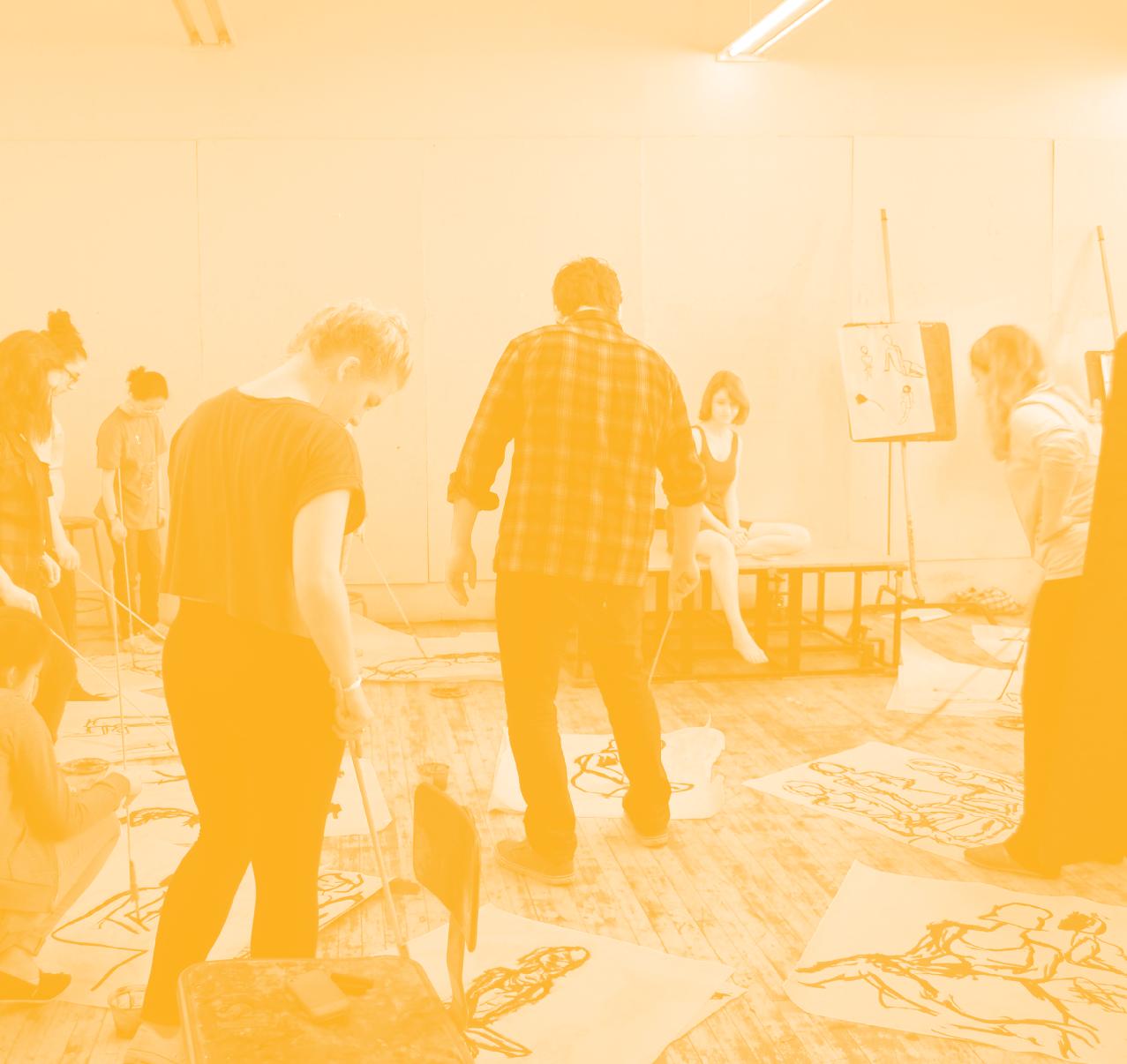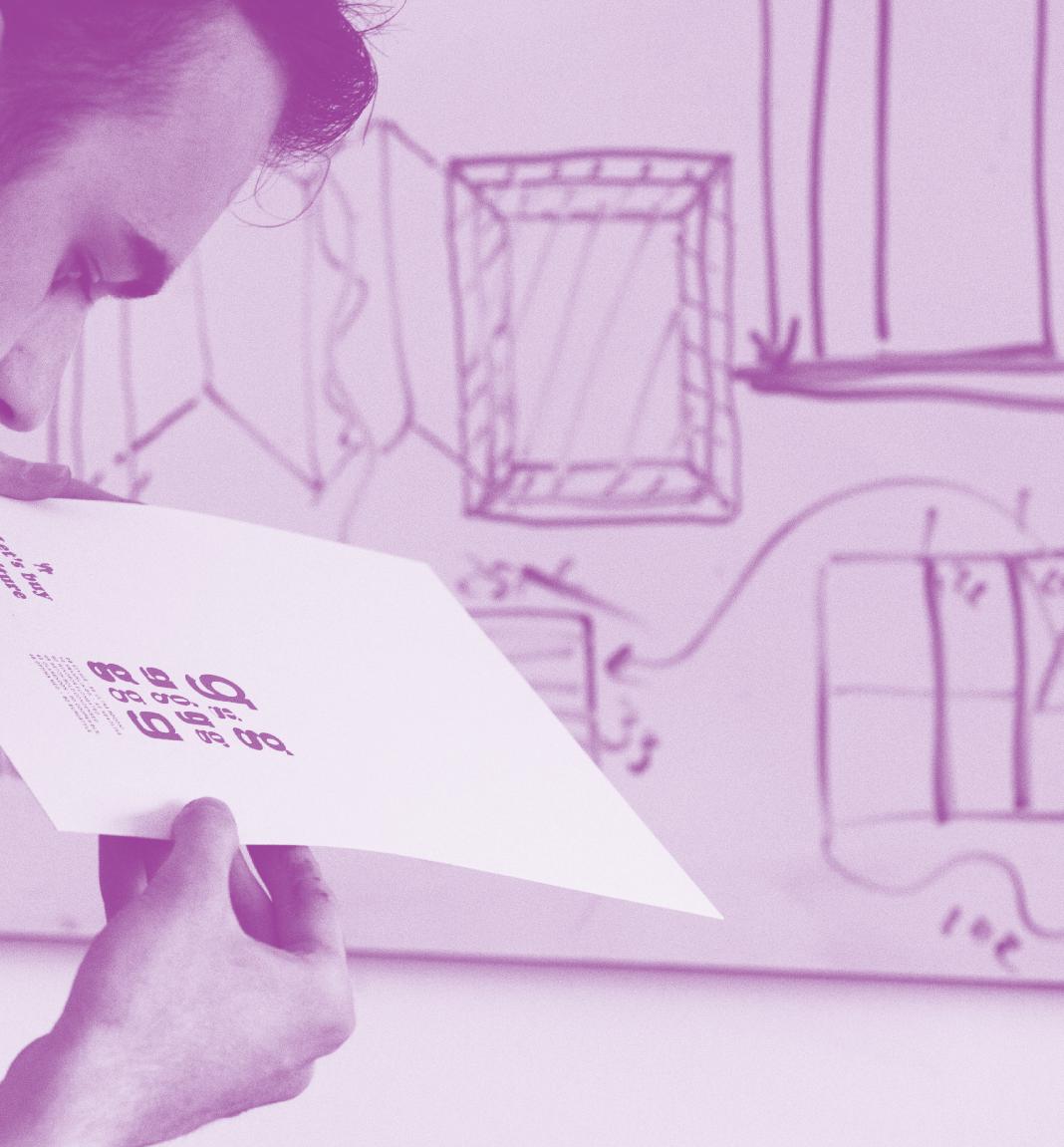












ACCREDITATION
Massachusetts College of Art and Design is accredited by the New England Commission of Higher Education (NECHE), formerly known as NEASC, and by the National Architectural Accrediting Board (NAAB).



















Massachusetts College of Art and Design is accredited by the New England Commission of Higher Education (NECHE), formerly known as NEASC, and by the National Architectural Accrediting Board (NAAB).






Art and design have the power to transform our world, and for 150 years graduates of MassArt have been leading in a wide array of the most important fields. At MassArt you will find and shape your community as you pursue your education and deepen, expand, and develop your artistic and creative talents.
MassArt will celebrate its 150th anniversary next year, building on a powerful legacy as the first freestanding public college of art and design in the country, and the nation’s first art school to grant a degree. Experts in their fields and their practices, our faculty are intensely committed to the success of our students, and across the campus you will find dedicated and talented staff, and creative and inspiring students. Together, faculty, staff, and your classmates comprise a welcoming and dynamic learning community. Here you will find the tools to make your mark while exploring the many ways you can make a difference by pursuing your passion.
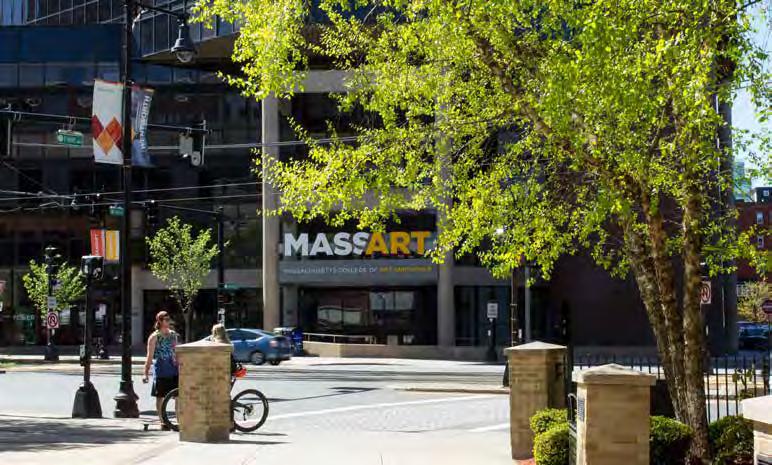
Our vibrant campus is located on Boston’s Avenue of the Arts–one of the city’s liveliest centers of arts and culture. Classes and studios are enriched by visiting artists and through exhibitions at the MassArt Art Museum (MAAM), MassArt @ SOWA, and our campus galleries, which host student shows throughout the year. Through campus clubs and organizations and social events, you will find new and exciting ways to explore and stretch yourself, to make friends, and to build community. At MassArt, you will have access to an array of classes, facilities, clubs, organizations, and other resources available through our college and university partners. You will also connect with an extraordinary network of alumni who are educators, artists, innovators, makers, designers, and ground-breaking pioneers leading in every industry and working across the globe, and around the corner.
Mary K. Grant, PhD President
Come join us!
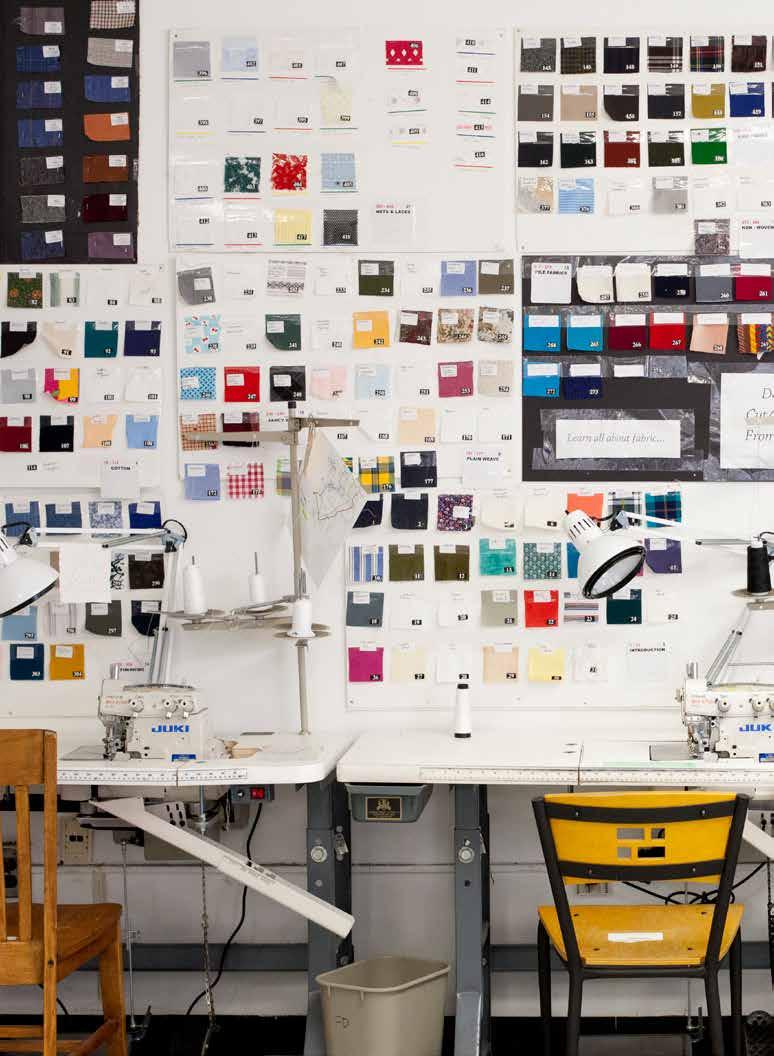
Massachusetts College of Art and Design is a public, independent institution that prepares artists, designers, and educators from diverse backgrounds to shape communities, economies, and cultures for the common good. We pursue a just, compassionate, and equitable learning environment. We cultivate rigorous creative practices by observing, questioning, making and remaking. We honor courage, honesty, mutual respect, and self-expression. We believe in the power of art and design to transform our world.
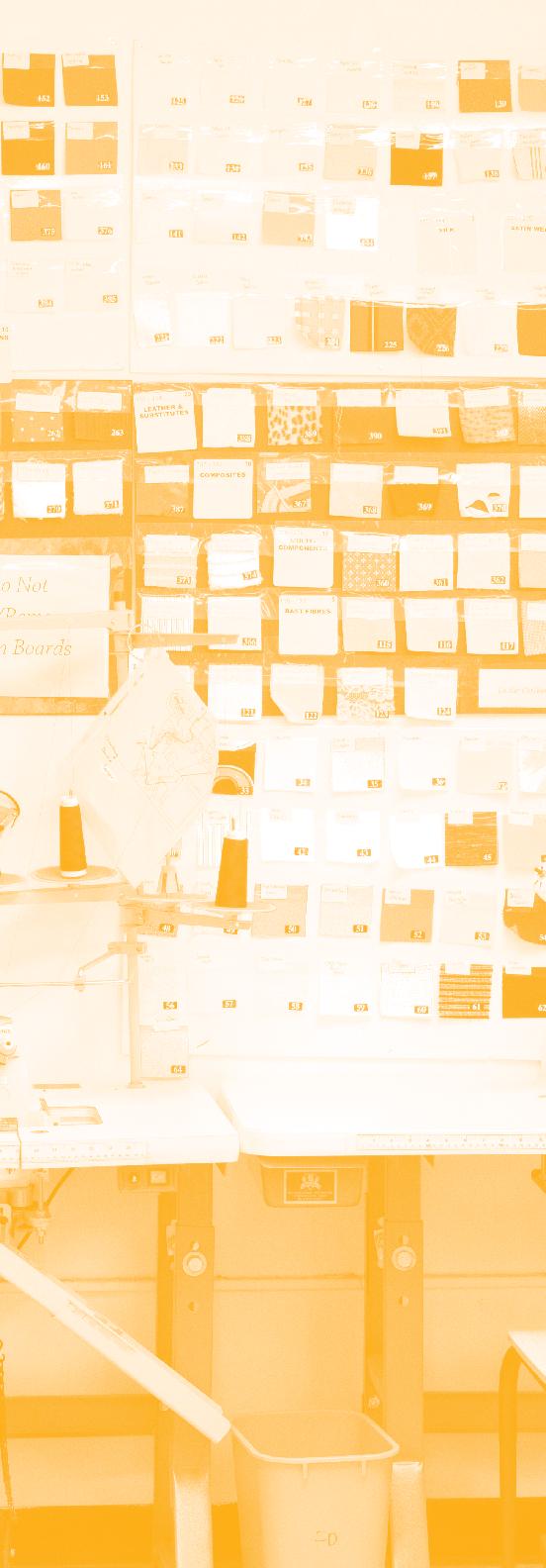
With your MassArt student ID, you can visit local museums for free including the Museum of Fine Arts, Isabella Stewart Gardner Museum, Institute of Contemporary of Art Boston, and the Harvard Art Museums.
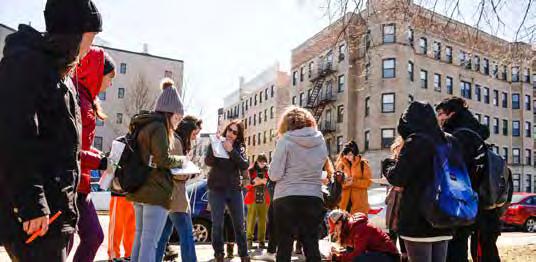
The College is located directly across from the Green Line on the Massachusetts Bay Transportation Authority (MBTA) (commonly referred to as the “T”). The “T” will take you across Boston, to surrounding neighborhoods, and across Massachusetts by subway, bus, commuter rail, and boat.

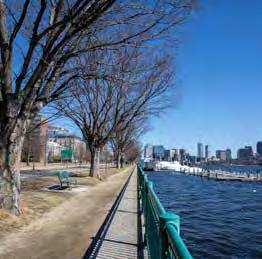
Arnold Worldwide
Bose Corporation
Boston Ballet
Boston Children’s Hospital
Christie’s Auction and Private Sales
City of Boston Converse Inc.
GBH
Huntington Theatre Company
John F. Kennedy Presidential Library and Museum
Microsoft New England Research & Development
The TJX Companies, Inc.
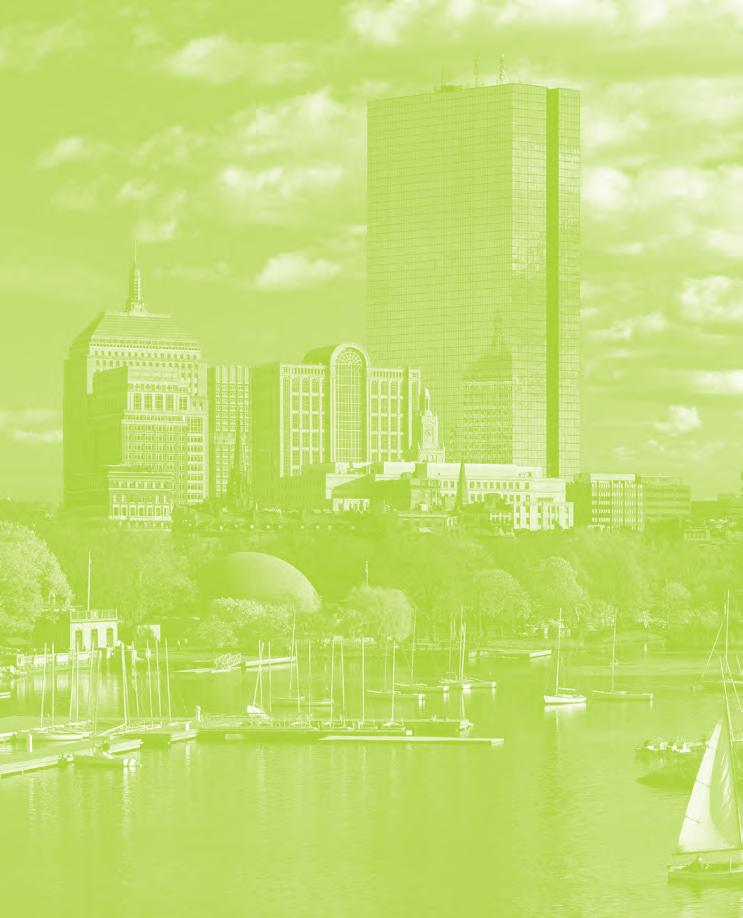
ocated on the Avenue of the Arts in the creative center of Boston, MassArt is just steps away from the Museum of Fine Arts, the Isabella Stewart Gardner Museum, and the lush landscape of Frederick Law Olmsted’s Emerald Necklace park. Hop on a subway train or bus from outside MassArt’s front door to explore Boston’s dynamic neighborhoods and discover contemporary art in galleries, studios, warehouses, and performance spaces throughout the city.
Boston is your expanded classroom—a place to be inspired by architecture, history, and creative opportunity. As a MassArt student, you can enroll in classes at over a dozen nearby colleges for no additional cost and participate in extracurricular activities with students from other schools. Recognized as a global innovation city, it’s also the ideal place to launch your career. Through internships at companies both large and small, students can apply their skills and experience in a professional environment, acquire business skills, and explore potential career paths.
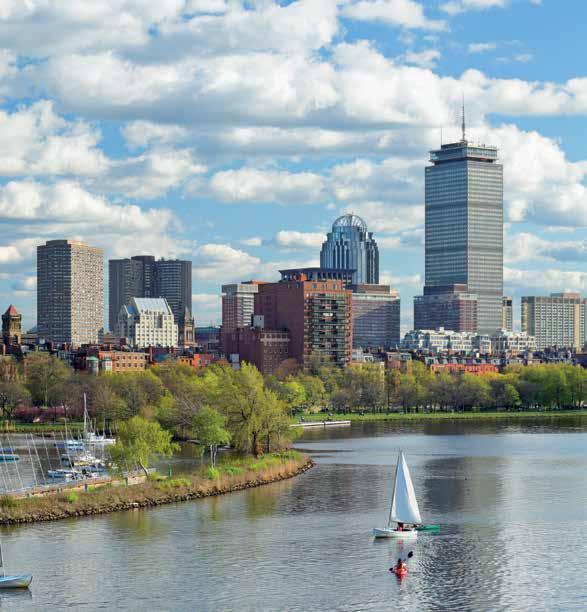
We’re part of the Colleges of the Fenway and ProArts, which provide cross-registration, performing arts, athletic, and social opportunities for our students with other colleges in Boston.
COLLEGES OF THE FENWAY: Emmanuel College
MCPHS University
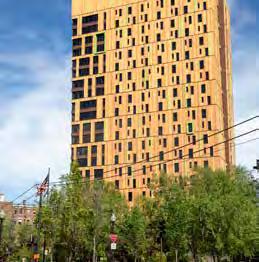
Simmons University Wentworth Institute of Technology
THE PROARTS CONSORTIUM: Berklee College of Music
Boston Architectural College
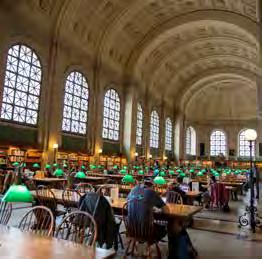
Boston Conservatory at Berklee Emerson College
New England Conservatory School of the Museum of Fine Arts at Tufts
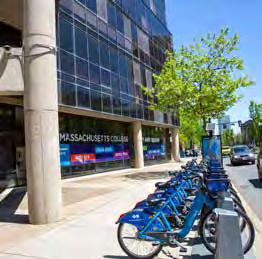
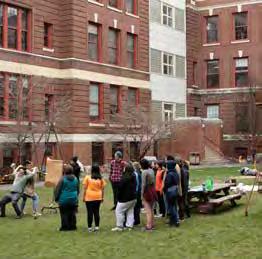
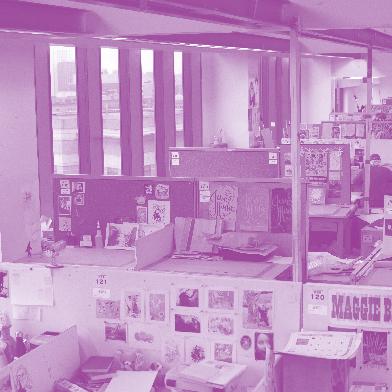
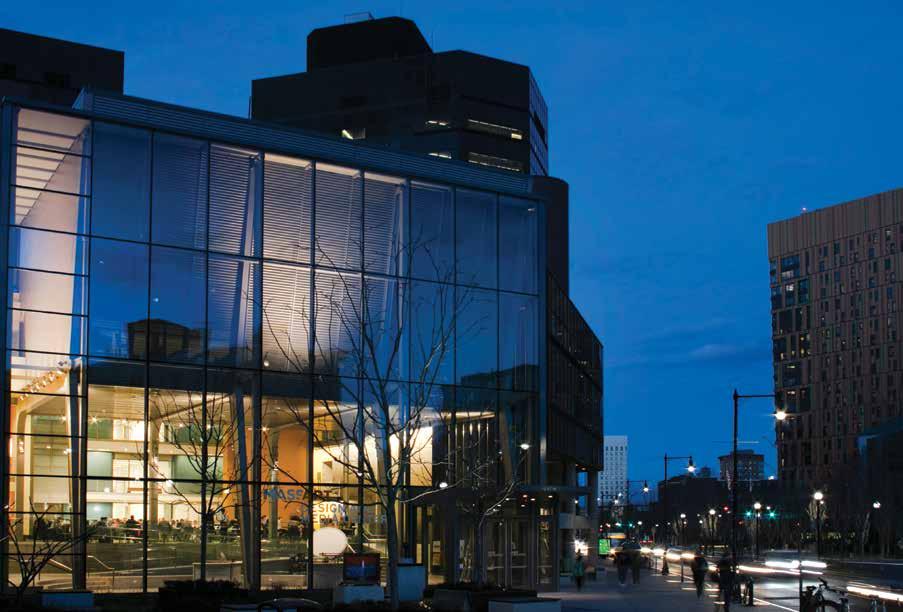
he campus is monitored 24/7, 365 days a week by our Public Safety department. Building entrances are staffed with Institutional Security Officers and equipped with electronic key card access readers.
DESIGN AND MEDIA CENTER
40,000 sq ft comprised of a fully-equipped sound studio, a fully appointed wood shop, gallery space, a professional film lighting studio, two black box studios, a product development laboratory, project rooms, and a lecture hall
HOT SHOP

2,500 sq ft studio for glass-blowing and flame working
KILN ROOM
includes six large electric kilns, four large-gas fired kilns, and ample studio space
A fabrication shop with welders, plasma cutters, vertical mills, drill presses, bandsaws, shears, an ironworker, and forge area
LOOM ROOM

Boasts individual workspace for juniors and seniors, a surface design studio, two weaving studios, a dye kitchen, a darkroom, and more
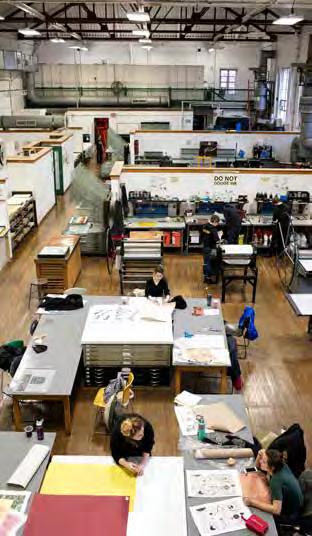
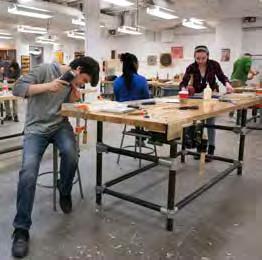
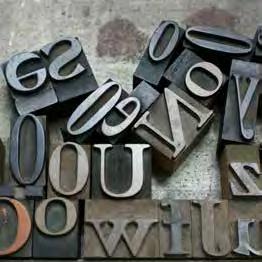
9,000 sq ft with an etching, relief, and monotype area; lithography area; and silkscreen area
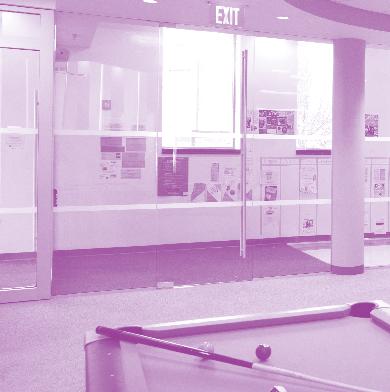
3,000 sq ft light-tight flexible performance space equipped with video, audio, and lighting systems
Three residence halls specially designed for studentartists and located directly across the street from the academic campus
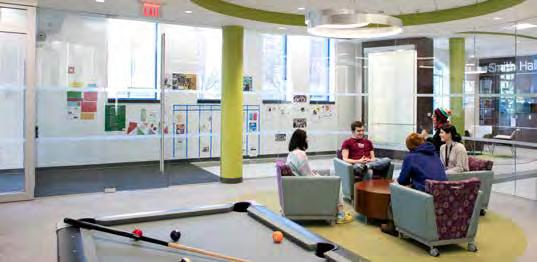
To open eyes, expand minds, and create opportunity through the lens of contemporary art.
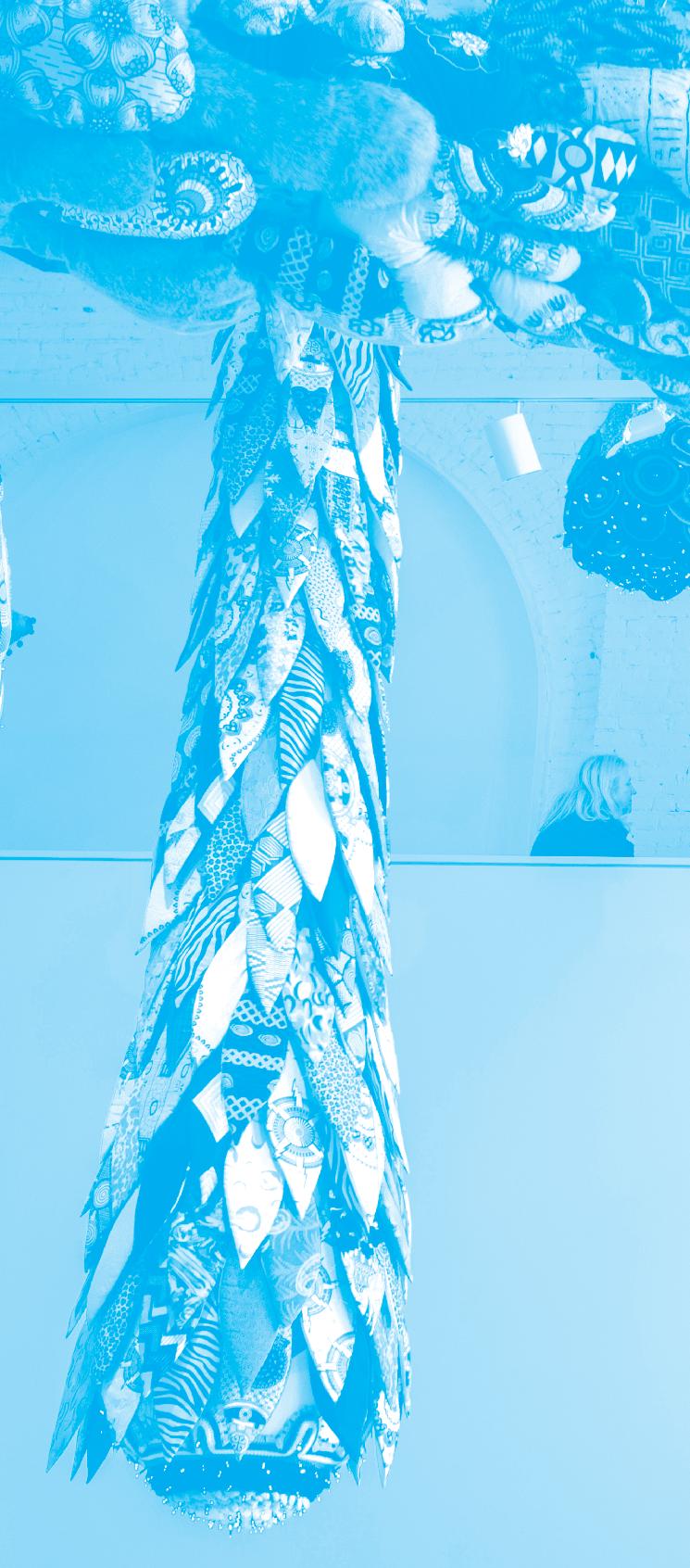
he MassArt Art Museum (MAAM) is Boston’s only free contemporary art museum. MAAM is a kunsthalle, or non-collecting museum, a space to experience works by visionary artists at the forefront of contemporary art. As MassArt’s teaching museum, MAAM is a resource for MassArt students and faculty, educating students about contemporary art, partnering with faculty to support the curriculum, and preparing students for careers in the museum field. As an extension of the College’s public mission, the Museum offers pathways to education in the arts and free, unique educational programming for the public.

Learn more at maam.massart.edu.
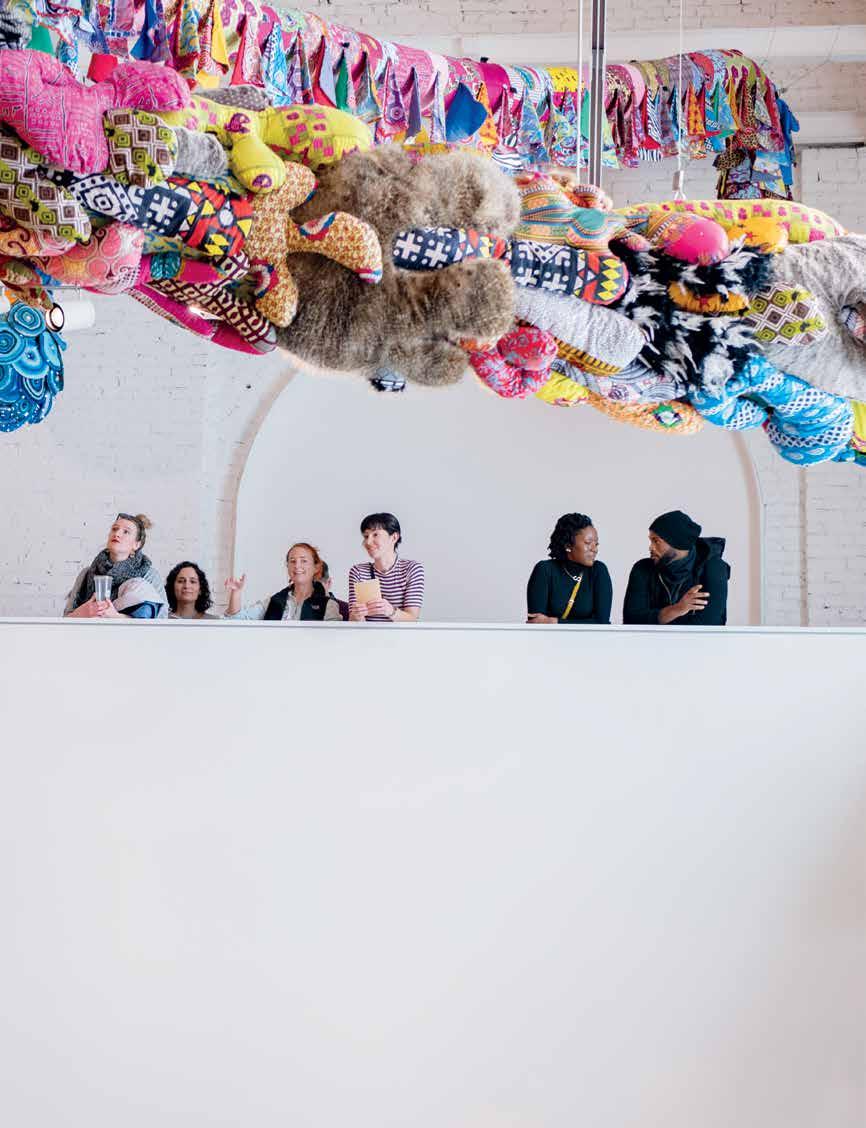
assArt students are encouraged to extend the boundaries of learning beyond the classroom and studio through extracurricular activities that allow them to meet new people, gain new experiences, and make a difference in the campus community.
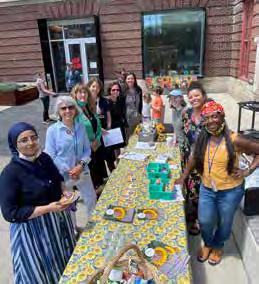
MassArt’s Student Government Association enhances the student experience by providing a forum in which their voices may be heard. Through open meetings, students can promote and advance matters concerning their community.
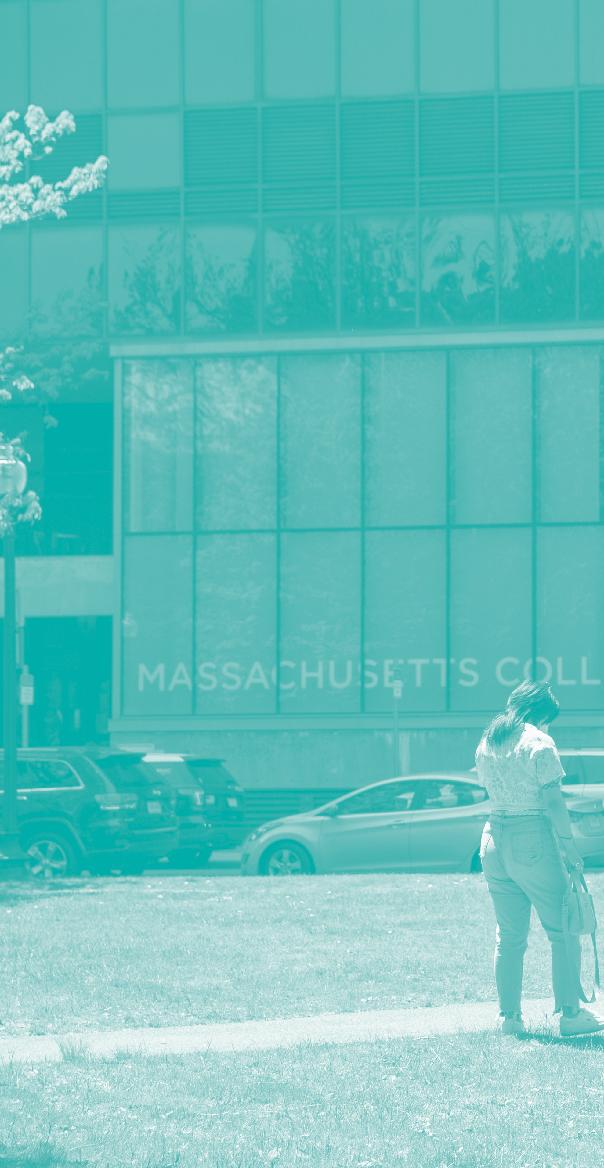
MassArt’s Center for Art and Community Partnerships embarks on building relationships through projects and programs that engage people of all ages; build community through collaboration; make connections between the human and material resources of MassArt and the greater community; support community goals and initiatives; and provide ways for students, faculty, staff, and alumni to be involved in the dynamism of the greater community.
The Office of Justice, Equity, and Transformation (JET) at MassArt guides and leads the important work that achieves systemic equity in all areas of the educational institution through transformation of campus culture. JET facilitates programmatic connections that support curricular and co-curricular retention and mentoring initiatives and is committed to supporting and providing affinity space for students to build community, talk about issues, celebrate cultures, and share resources. JET Student Leaders provide outreach and support to their peers and provide critical feedback to aid the College in achieving its goals for equity and inclusion.
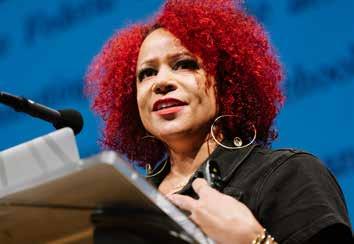
In memory of Tyrone Maurice Adderley, a talented and popular painting student, MassArt has welcomed artists, writers, scholars, and activists from underrepresented groups to share their work and wisdom with the community since 1995.
RECENT SPEAKERS: Dr. Cornel West Andres Serrano
Kylie Webster-Cazeau and Meggie Noel Dr. Carole Boyce Davies Zanele Muholi Whitfield Lovell Clennon King Wangechi Mutu Winfred Rembert
MassArt welcomes artists and lecturers across all disciplines to enhance curricular offerings. Recently, MassArt has hosted legendary shoe designer Stuart Weitzman, NYC designer and author Adam Kurtz, multimedia artist Jack Pierson ’94 BFA SIM, Architect Eric Höweler, and Jeweler and Sculptor Joyce Scott.
If there is one thing I have learned during my time here at MassArt is that I am in control of my future.”
MassArt introduced me to a community of people who love art and design as much as I do.”

ooking to gain experience and explore career paths before graduation?
MassArt students are encouraged to complete two credit-bearing art and design internships. Search from a database of over 1,000 annual internship opportunities or attend Career Development’s Internship and Job Fair to connect directly with future employers.


When you’re ready to begin your job search as a current student or upon graduation, you have access to Career Development’s 3,000 art and design job listings each year. Discover the full-time, part-time, or freelance job that’s right for you in addition to on-campus positions, student scholarships, artist grants, and fellowships.
Throughout the year, Career Development partners with MassArt’s knowledgeable and experienced faculty to invite company representatives from the creative economy to departmental portfolio events, arrange company site visits, and offer presentations in the classroom and studio.
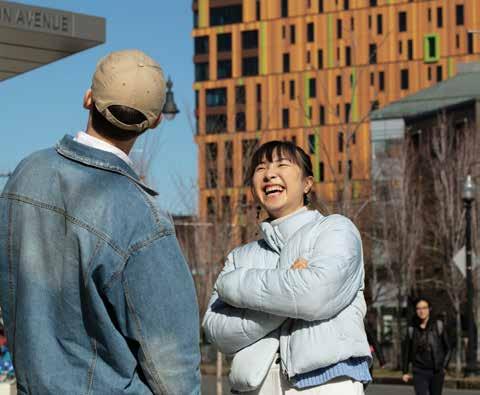

Advertising Illustrator / Arts Administrator / Arts Editor/Journalist / Architect / Art Historian / Art Therapist / Auction Specialist / Bookplate Artist / Boutique Owner/Operator / Brand/Identity Designer / Cartoonist / Children’s Illustrator / Cinematographer / Commercial Printer / Community Art Coordinator / Costume Designer / Creative Director / Curator / Decorative Metal Artist / Design/Builder / Director / Documentarian / Editorial Illustrator / Editorial Photographer / Educator/Instructor / Engraver / Entrepreneur / Event Photographer / Event Producer / Exhibiting Artist / Fashion Designer / Fashion Stylist / Figurative/Portrait Artist / Filmmaker / Film/Sound Editor / Film Editor/Video Editor / Furniture Designer / Gallery Owner / Glass Artist / Graphic Designer / Graphic Novelist / Historic Reproduction Designer / Industrial Designer / Interior Designer / Inventor / Illustrator / Jewelry Designer / Jewelry Restoration / Lead Animator / Lighting Designer / Master Printer / Medical Illustrator / Metalsmith / Model Maker / Motion Graphic Artist / Multimedia Artist / Muralist / Museum Educator / Museum Conservationist / Museum Gallery Curator / Object Designer / Packaging Designer / Photojournalist / Potter/Ceramic Designer / Portraitist / Printing Designer/Craftsman / Producer / Product Designer / Restorer / Set Designer / Studio Artist / Television Producer/Director / Textile Conservator / Textile Designer / User Experience Designer (UX) / Video Artist / Video Game Designer / Weaver / Web/Interactive Designer /
JOHNNY CHEW BFA, ANIMATIONMy time at MassArt gave me the courage to pursue the art that I wanted to make, and not compromise my ideals or visions. When working I like to push artistic boundaries and I feel very blessed to be able to do what I love for a living. MassArt helped me rise to where I am today professionally.”
Formal principles of drawing including figurative and direct observational work
Further hone your drawing skills through advanced or thematic courses that focus on observation, expression, or technical drawing
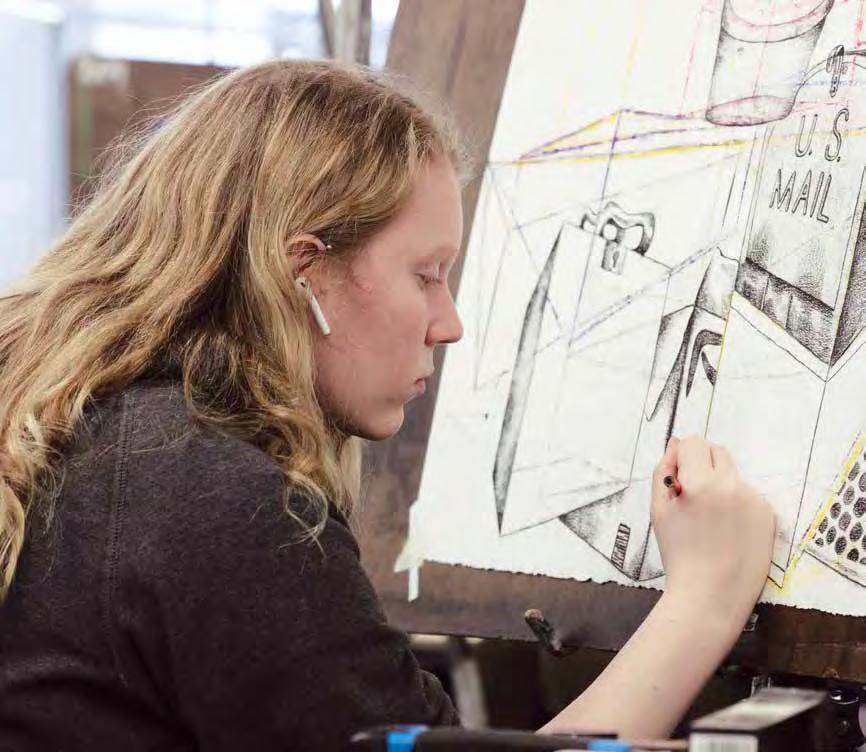
Two-dimensional design, color theory, and digital media
TIME
Exploration of time-based artwork through narrative, performative, spatial, tactile, and/or digital approaches
STUDIO
Your first year at MassArt will open your eyes to things you never saw coming. Some of the things you have no interest in today will become an obsession tomorrow.”
Three-dimensional art and design
Select from a wide variety of electives offered by assorted departments throughout the College
INTRO TO WESTERN ART Western art history from prehistory to the 21st century
THINKING, MAKING, WRITING: USING WORDS WITH CLARITY AND FLAIR
An introduction to writing for today’s global communication
Choose from a wide selection of 200-level courses
FIRST-YEAR SEMINAR Seminars on a range of topics in the humanities and social sciences
The Studio Foundation curriculum is required of all first-year students before selecting a major for the sophomore year. Students arrive at MassArt with varying levels of experience, as well as differing interests and backgrounds. Studio Foundation introduces every first year student to a wide variety of techniques and media that cut across traditions and technologies; something is new for everyone. First-year students learn to develop projects through all stages of the creative process, from inception, to design, then construction, presentation, revision, and completion. Students learn how to effectively and wisely critique their own work and the work of others, while learning to situate their studio practice in the historical, social and cultural contexts of artmaking.

ollege is about pursuing purpose, passion, experimentation, and bold decisions. MassArt is a place where we encourage vision, critical thinking/seeing/doing, and creative vigor. Goals come in many forms, and here, you’re encouraged to search, find, and become the strongest, besteducated, most creatively fulfilled version of yourself.
To earn a Bachelor of Fine Arts degree, students must complete a total of at least 120 credits. MassArt’s curriculum is sequential, and all students must complete the Foundation Year courses prior to entering their desired major.
*Depending upon the departmental requirements, electives may be studio, open, liberal arts, history of art, or departmentally required. Please consult departmental course requirement listings online.


fter completing the Foundation Year, all students continue taking Liberal Arts and History of Art courses, which comprise one-third of the Bachelor of Fine Arts program. Both curricula are designed to enhance and complement the creativity that occurs during the sophomore, junior, and senior years.
Liberal Arts courses help us to understand, appreciate, and come to better know humanity through cultural, historical, and intellectual contexts of art, design, literature, and history. Students have access to a range of writing, literature, and film criticism courses. You will also choose electives in social sciences, natural sciences, and mathematics, which provide additional context on how humanity has viewed the world across time, how art is created, and on principles of design. Examples of courses include:
→ Free Speech, Democracy and Artists
→ Queer Studies: Beyond Traditional Ideas of Gender and Sexuality
→ Gender Identity and the F-Word (Feminism)
→ Physics of Music
→ Bacteria Assassins
→ Physics for Artists
→ Animal Sex, Biodiversity, and Gender
→ Men, Women, and the Myth of Masculinity
→ Literature from Immigrants in America

→ Black Cinema: American Myth,Racial Ideology, and Hollywood
Your primary focus will be to create art while at MassArt, but artists also need to understand what came before them, how art has developed across time, geography, gender, economics, politics, and environment. By infusing the History of Art into the course requirements, students gain a deeper appreciation for the work they will produce for their future audiences. All students continue to take History of Art electives in the sophomore through senior years; it is also a program students may choose to major in. Among the many stimulating and unique courses are:
→ Art of the African Atlantic World
→ History of Experimental Film
→ Comics: History & Theory
→ Modern + Contemporary Latin American Art
→ Protection of Cultural Heritage
The creative writing minor enables you to invent, imagine, and enhance your writing through exploring voice, aesthetics, and the vast possibilities of words on a page. You will have opportunities to write stories, craft theatrical works, pen spoken word and poetry, and develop short screenplays. Your voice will strengthen through your prose and scripting, informing all the other arts you’re working on.

Professor Colvard is an award-winning filmmaker who was awarded a Guggenheim Fellowship in 2020. His documentary, Family Affair, premiered in competition at Sundance and was the first film acquired by Oprah Winfrey for her OWN cable channel. Professor Colvard’s recent feature, Black Memorabilia, premiered at the Museum of Modern Art (NYC) and aired on PBS’s Independent Lens. The film presents an intimate portrait of people who reproduce, consume and reclaim racist material. His current course offerings at MassArt include “Black Cinema and Social Justice Documentaries.”
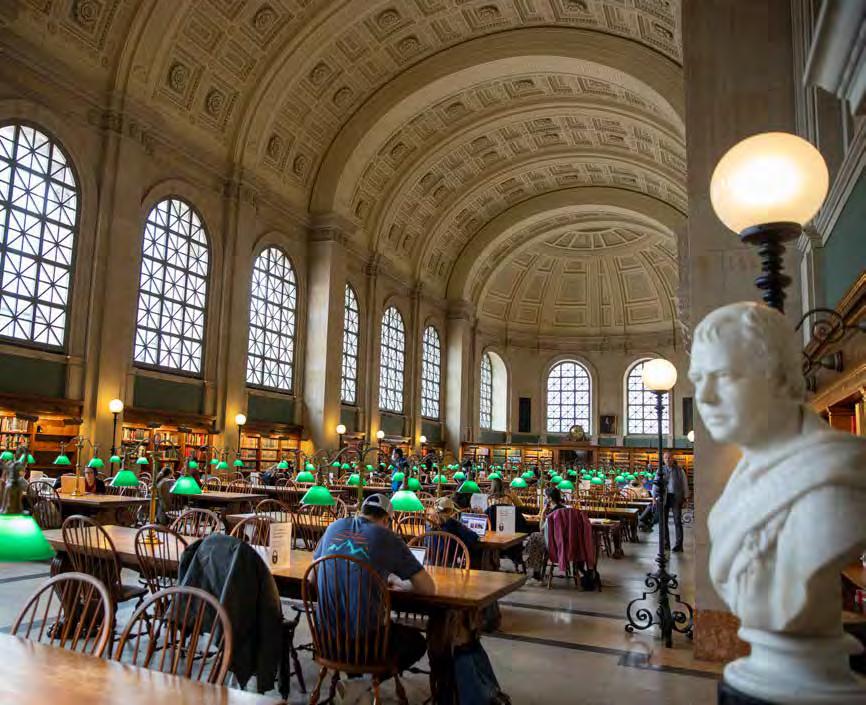

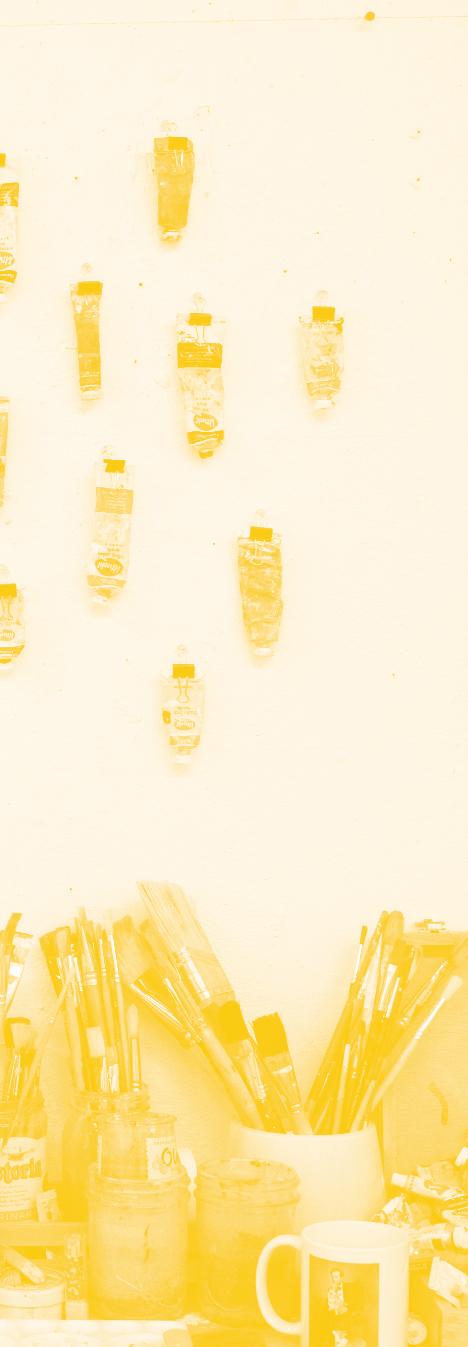
A selection of animated shorts is curated by the Animation department and screened at MassArt in the annual event, Squealing Pegs

For the last several years, the MassArt Animation
Senior Showcase has shown students’ animated shorts at the Museum of Fine Arts Boston, a special screening in this premier venue.
→ Arnold Worldwide
→ Boston Children’s Hospital
→ Boston Productions, Inc.
→ BrewHouse VFX
→ Hero4Hire Creative, LLC
reativity, innovation, and problem solving are at the core of any success in the field. To that end, students are encouraged to learn production efficiency while fostering a spirit of risk-taking.
Animation majors begin with assignments that hone technical skills while encouraging inventive and experimental work. Specialized equipment and facilities support their exploration of documentary animation, character animation, stop motion, experimental animation, experimental video, digitally generated animation (2D and 3D), and other emerging technologies. Regardless of their preferred technique, students learn the production skills necessary to become professional animators, including technical proficiency, organizational structures, and ongoing development of self-education.
I’ve never met such a supportive group of peers and professors. Everyone here just wants to succeed and get through the homestretch.”
Students capture sophisticated, professional-quality camera movements for stop motion animation using MassArt’s ARC VOLO Motion Control System.
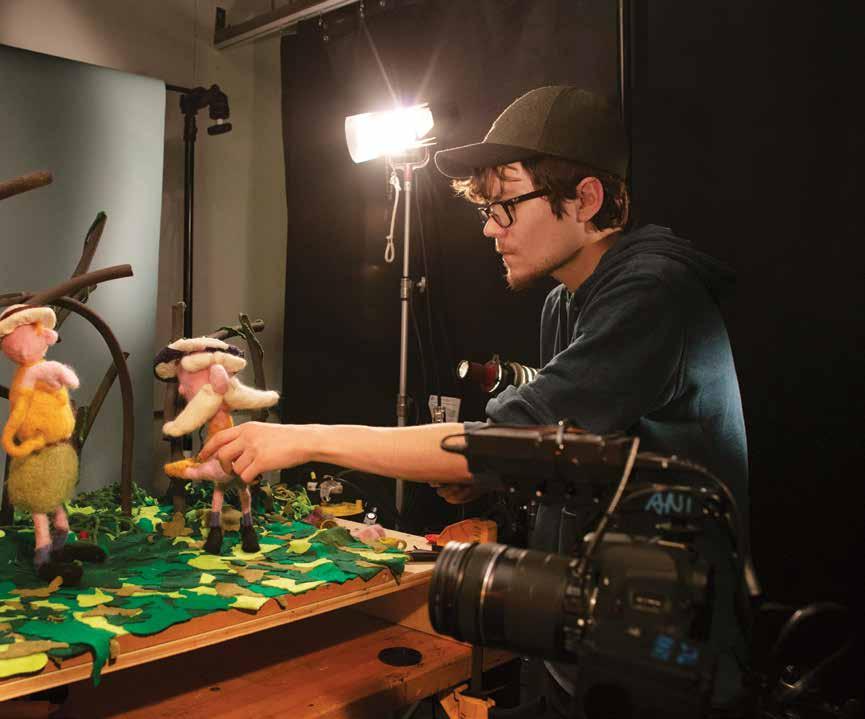
This course serves as an introduction to alternative animation techniques, with an emphasis on the integration of emerging digital tools with “oldschool” animation devices and techniques such as Zoetropes, flipbooks, rotoscoping and multi-plane shooting. A semester-long, image-based digital animation will be produced, along with numerous shorter assignments.
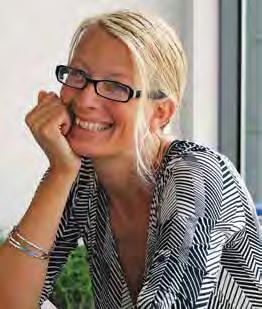
Assistant Professor Tamara Roy is an architect and urban designer at Stantec, specializing in multifamily residential, academic, and commercial projects. Professor Roy’s work focuses on compact living and how it can address the housing crisis in Boston singles and couples and reduce carbon footprints in urban neighborhoods. Recent projects include the MassArt “Treehouse” Residence Hall, the Yotel Hotel in Boston’s Seaport, Boston’s South Bay Shopping Center Project, and more.
Students may pursue a Master of Architecture degree at MassArt, accredited by the National Architecture Accrediting Board, by completing an additional five semesters following the fouryear undergraduate program.

The Architecture department hosts a series of “Tuesday Talks” with architects, engineers, and fabricators to discuss prevalent topics in the industry. Past speakers have discussed sustainability, landmark design projects, innovation, and more.
rchitecture students gain pre-professional knowledge of architecture and related subjects such as exhibition design, furniture design and fabrication, and sustainable design. They learn to solve complex problems and to design buildings, interiors, and structures that satisfy social, aesthetic, safety, and ecological considerations. The hands-on approach includes model-making as an analog for the building process.
Rather than teaching one particular style of design, the architecture program prepares students to be sensitive to the needs of their clients and to adapt to the constraints of the surrounding environment. Upon completion of the program, students qualify to obtain positions in a range of architecture firms or to continue study in graduate-level architecture schools.
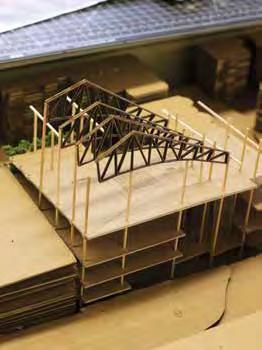

ithin art education, the program prioritizes justice and equity while emphasizing engaged studio practice, social activism, and expansive scholarship. Students are prepared to facilitate pedagogy (teaching theory) that is authentic to the dynamics of contemporary visual arts. We train educators who are generous, nimble, resourceful, and reflective practitioners.
MassArt celebrates its urban context, particularly through a historical partnership with Boston Public Schools. MassArt’s Saturday Studios Program, a tradition in Boston for over 80 years, offers students the opportunity to gain supervised and supported hands-on experience as educators by teaching Saturday morning art classes to elementary through high school students. Art Education students catalyze inclusive, active, and activist learning for all, across educational contexts and environments.
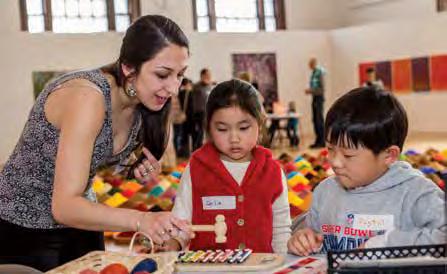
Students in the Art Education Department are required to complete a supervised internship in a school, community center, museum, or gallery setting. Students interested in obtaining an initial state licensure to teach in the visual arts must complete their Student Teaching Practicum, a semester-long, full-time experience in a schoolsetting following their senior year.

The Art Education department embodies a critical, studiocentric approach to visual arts education, and was the foundation of MassArt when the school opened.
TWO PROGRAMS OF STUDY
BFA in Art Education with Studio Breadth offers a broad education in studio work, including 2-D, 3-D, and media arts.
BFA in Art Education with Studio Specialization equips students with the expertise and preparation in a single studio area.
For students interested in state licensure to teach in the visual arts, MassArt offers two innovative
+ 1” Art Education programs to enable students to complete both their Bachelor and Masters degrees in five years.
MA
This 30-credit Masters program is for MassArt students who are earning their BFA in Art Education.
MAT
This 30-credit Masters program is designed for MassArt BFA students who are not majors in Art Education but who want to teach art at the elementary or secondary level.
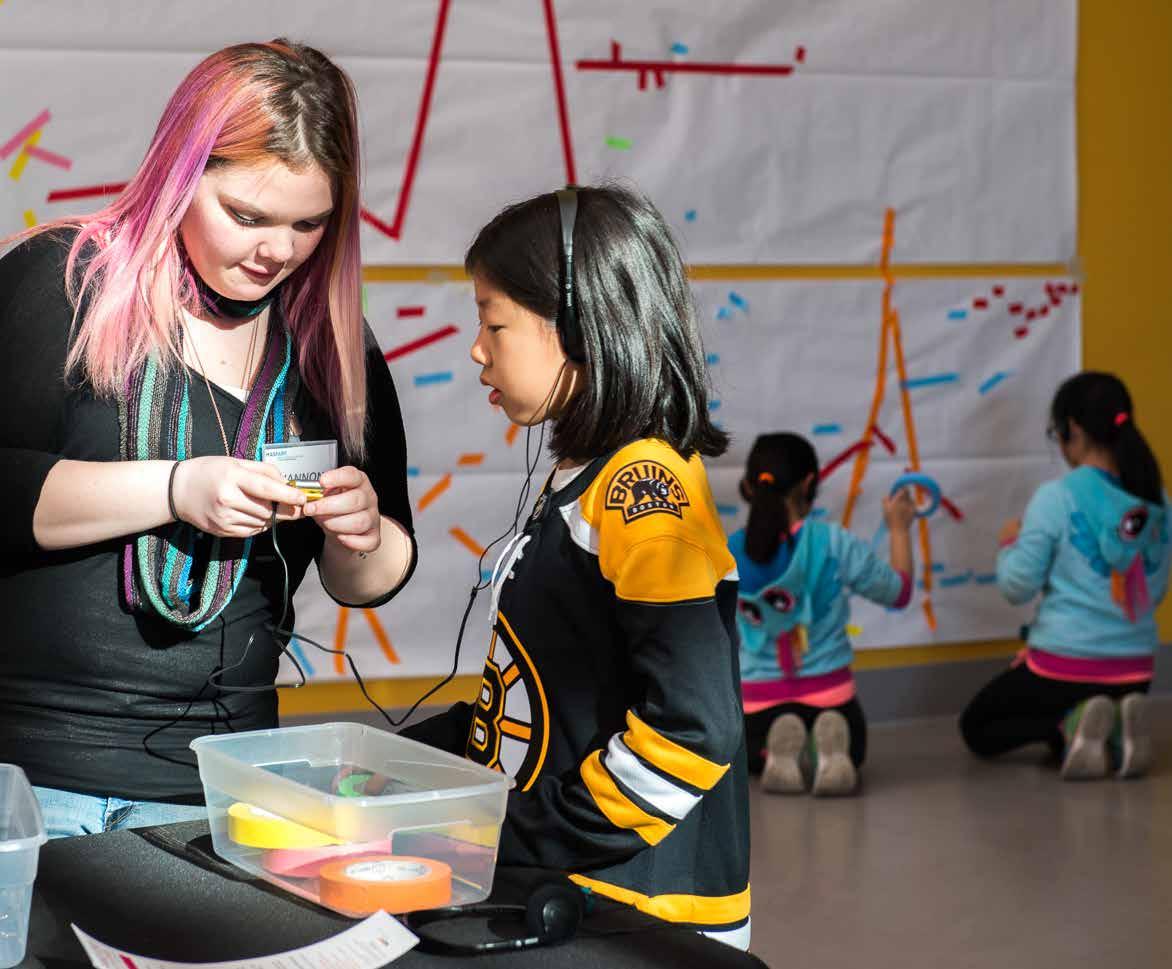
INTERNSHIPS
Beacon High School
Institute of Contemporary Art Boston
Italian Home for Children
MIT List Visual Arts Center
Museum of Fine Arts, Boston
MassArt’s ceramics facilities are among the best in the U.S. The Kiln Room is equipped with six large electric kilns, four large gas-fired kilns, and ample studio space for students to have their own work tables.


Clay for Change, a student-run organization at MassArt, connects students to the greater ceramics community by teaching them about clay practices and how they can be used to help others. Every year, the organization hosts a bowl making event at which more than 300 bowls are created and decorated for the Annual Souper Bowl to raise funds for the Haley House Soup Kitchen in Boston’s South End neighborhood.
Since 1975, MassArt faculty and students have attended, participated, and exhibited at the National Council on Education in the Ceramic Arts (NCECA) Conference. NCECA is an internationally known networking organization that brings together up to 7,000 artists per year at their annual conference. While at the conference, students experience exhibitions, lectures, panel discussions, and alumni gatherings to aid in their study of ceramics.
RECENT
→ Ceramics Program at Harvard University
→ Mudflat Pottery School and Studios

→ Santa Fe Clay
→ The Society of Art and Crafts
→ Webster House Arts Program
eramics students explore personal ideas through the lenses of history, aesthetics, world culture, social/environmental issues, design, craftsmanship, science, and innovation. The program provides students with the practical and theoretical preparation they need to pursue ceramics as a dedicated vocation or as a facet of their artistic repertoire.
The undergraduate curriculum offers a strong foundation in technical skills and concepts important for today’s artists, designers and educators working in ceramic materials. These include the basic techniques of handbuilding, wheelworking, moldmaking, glazing, and kiln-firing, as well as work in ceramic casting, architectural ceramics, and clay and glaze materials.
Throughout the curriculum, students focus on developing a portfolio while taking courses in critical thinking and research and participating in lectures, field trips, and critiques with faculty, students, and visiting artists. In preparation for graduation, students are required to take a professional practice course that prepares them for life after MassArt.

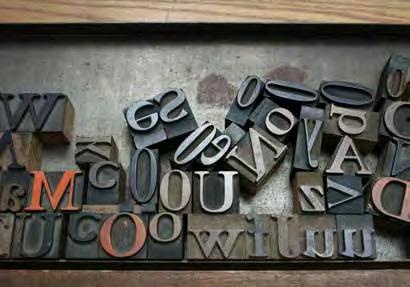
hrough MassArt’s hands-on studio classes led by practicing designers and educators, students are challenged to develop design solutions in the areas of package design, publication design, web and application design, interactive communication, and advertising, as well as the creation of graphic identities and brand systems. Students navigate the challenge of receiving critiques on their work and thoughtfully critiquing the work of others.
Students are encouraged to complete an internship during their studies, to gain insight into producing design work for clients and discover the applications of the profession in different environments.
Ultimately, students will learn how to apply structure, surface, and form to their design—and to effectively engage with their clients, a variety of audiences, and the culture at large.
Community Partnership Design, taught by Professor Lisa Rosowsky, explores almost every area involved in print production for graphic designers, including offset printing, printing estimates and working with a printer, binding and finishing paper, prepress, color separation and color proofing, and halftones and scanning issues. The print projects are community service-based and are developed with non-profit partner clients such as the City of Boston’s A New Bostonian’s Guide to Boston and Dana Farber Children’s Hospital Cancer Care program’s What’s Cooking: Fun Recipes for Family Wellness, etc.
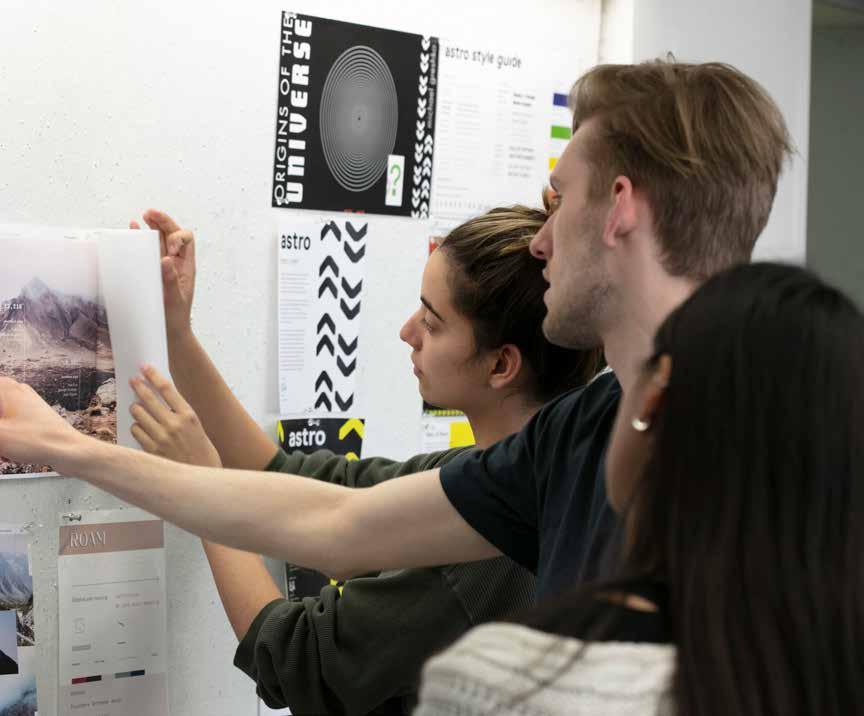
Explore issues of sustainability as they relate to fashion. Students examine current practices of sustainable designers and companies, eco-friendly textiles, innovations in textile design and production, waste minimization and up-cycling in design. We consider sustainability along the supply chain of a garment’s production, including ecological impact, ethics and social responsibility, fair trade, and cultural techniques and traditions. Students will apply sustainable methods through their own design processes, and develop and complete an eco-designed garment.
At the end of the spring semester, the Fashion Design department produces a live show with full collections from seniors and select designs from sophomores and juniors. Students gain invaluable experience in every aspect of planning and producing a fashion show, from curating a collection to selecting and styling models.
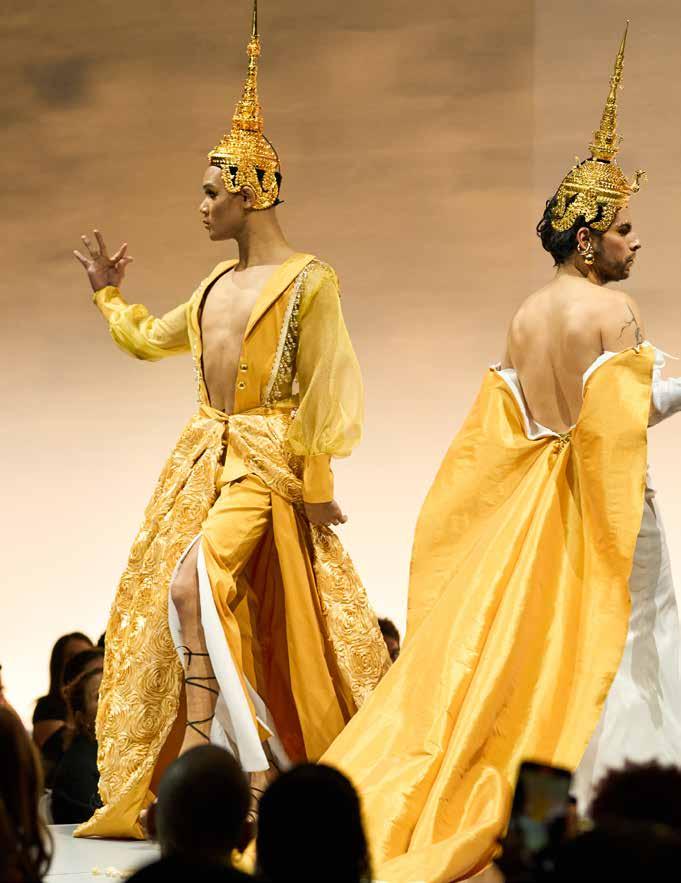
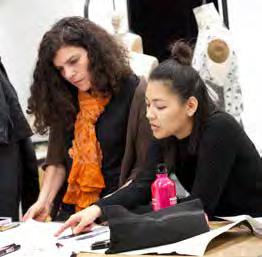
→ Anthropologie
Boston Ballet
Diane von Furstenberg
Marc Jacobs
Oscar De La Renta

stablished in 1907, MassArt Fashion Design is one of the oldest programs of its kind in the country. Students learn the processes, techniques, and tools needed to develop design concepts across formats—2D and 3D designs, digital and hand drawings, flat patterns, and fully constructed garments—while developing the critical skills they need to evolve into versatile design professionals. Beyond the basics of fashion design, students learn the business fundamentals of apparel marketing, manufacturing, and production procedures.
Each year, Fashion Design students participate in off-campus fashion presentations and exhibits, including showcasing work at the Museum of Fine Arts Boston, Copley Place Mall Boston, Children’s Museum Boston and SEED in Providence. Students develop the skills and training they need to convey their singular viewpoint and to craft a portfolio that embodies that vision.
ROGER NEVES FASHIONMy favorite part of my experience at MassArt would have to be the unique environment created with the mixture of a community and creativity. Making art and friends at the same time puts me in the best mood and mindset.”
MassArt has two loom rooms, a yarn closet, dye labs, and surface design room to support fibers students.

ibers students receive training in the practical and creative aspects of the medium through the classical techniques of weaving, surface design, knitting, felt-making, basketry, hand papermaking, interlacing, dyeing, and fabric construction.
Through seminars, advanced studios, and coursework, students learn how to integrate fiber concepts with other disciplines, including sculpture, performance, installation, drawing, and architecture. Students are encouraged to make meaningful connections between traditional fiber approaches and contemporary developments in art, craft, and design.
MassArt equips students with the essential skills and tools they need to pursue their own distinctive vision and create compelling original works.

Fibers is one of the world’s oldest art forms—and a rich source of creative inspiration across disciplines.
This class explores the ways that knitting can be used as a medium for sculpture and installation; students learn different techniques of creating form such as knitting in the round, sewing, using alternative materials such as felting, and knitting on looms and by machine. The course examines artists who are using knitting and related techniques, and will examine contemporary issues related to the variety of approaches.
ERIN RILEY ’07
Erin Riley’s hand-woven textile piece titled Nudes 17 was featured in the 2017 MassArt Auction.
A graduate of the class of 2007, Erin is the youngest MassArt alumna ever selected for the prestigious MassArt Live Auction.
→ Amy Nguyen Textiles
→ Gateway Arts
→ Michael Kors
→ The Society of Art and Crafts
→ Vermont Weaving School
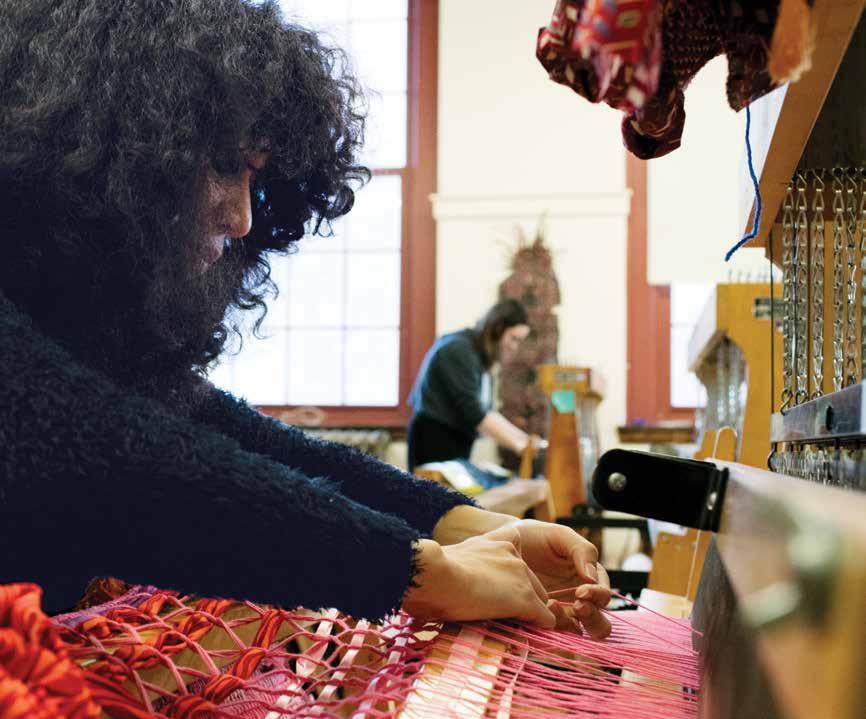
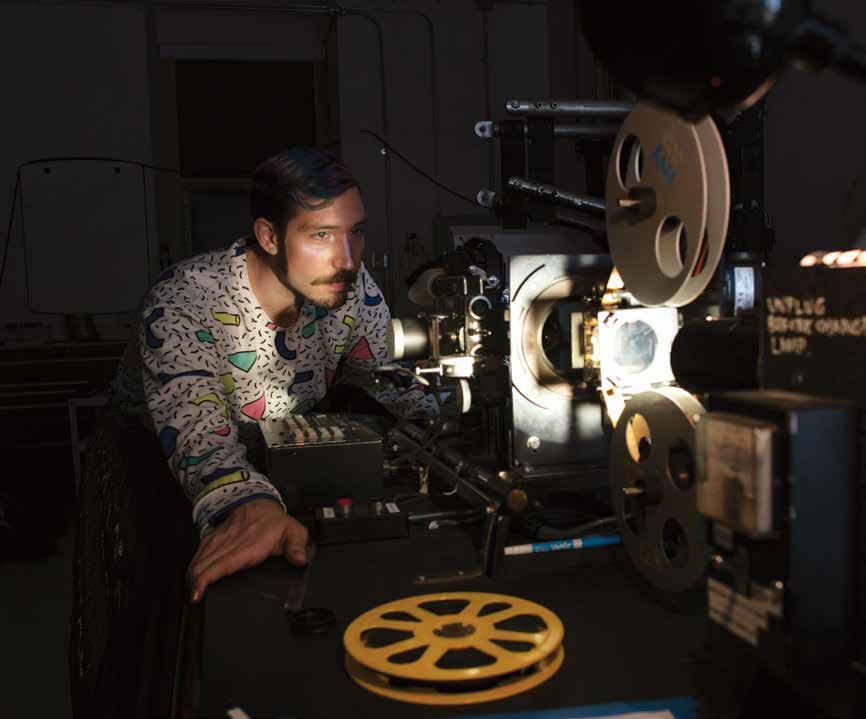
Students at MassArt study film and video as fine arts, in an environment that emphasizes and supports the development of a personal vision and encourages experimentation across mediums and genres.
SITE, PERFORMANCE, SCULPTURE Video installation is an ever-expanding contemporary art genre. This introductory course is for students who are interested in learning how to create videos and integrate them into 3D and interdisciplinary art practices. Readings, screenings and discussions address a range of video installation art practices— past and present. Students are challenged to address various approaches to video/audio creation, presentation styles, and the meanings created from pairing video with forms, performance or environments.

he program offers small class sizes, nationally and internationally recognized faculty, and a curriculum designed to give students the conceptual tools and technical training they require to develop as moving image artists, critical thinkers, and media professionals. Students create works that move beyond traditional video and filmmaking to include gallery installations, multi-screen narratives, and experimental and documentary shorts. Research culminates in an ambitious thesis project in the senior year.
Film/Video electives regularly include cinematography and lighting, editing, handmade film, performance for camera, post-production finishing, screenwriting, sound design, and video installation. Students are challenged to create new forms of viewing experiences, whether personal, political, conceptual, abstract, visceral, and visionary—or something else entirely.
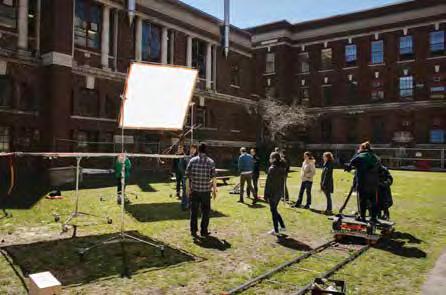
Film and Video major allows me
take my work
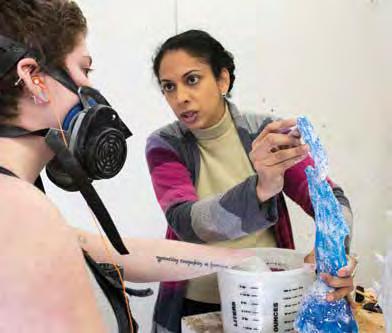
tudents are introduced to technical processes such as glassblowing, hot pour casting, and cold glass fabrication, as well as kiln-related processes such as fusing, slumping, and casting.

In recognition of the centuries-old glassmaking tradition, students gain a deeper understanding of historical glass techniques and how they inform current practices. The department’s glass shed includes separate rooms for working with hot and cold processes and includes equipment to cut, grind, polish, drill, and sandblast glass.
Students research the topics and artists relevant to their own development, to gain a stronger sense of their artistic direction. Faculty and visiting artists offer skills and knowledge to support students’ growth, in addition to seminars, slide lectures, studio visits, and exhibitions. The glass studio is also home to discussions on contemporary art-making issues in glass.
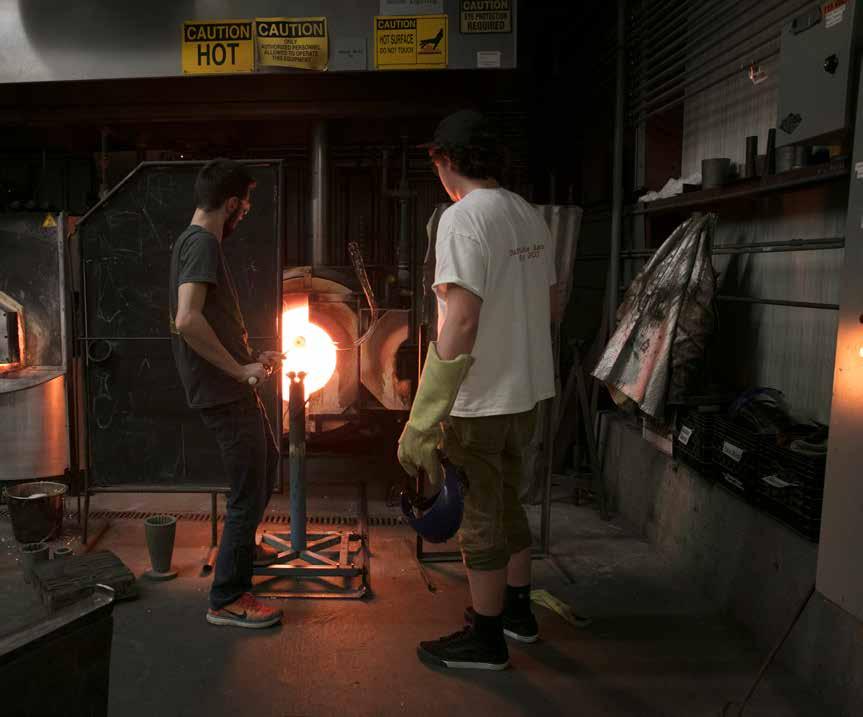
The Glass Shed, colloquially known as the “Hot Shop,” is a 2,500 square foot studio for glassblowing and flameworking. Resources in the Hot Shop include melting furnaces, Glory holes, pipe warming station, reheating garage station, working benches, flame working area, electric annealing ovens, and casting ovens. Along with the Hot Shop, the Glass Department boasts a glass coldworking room and a glass diamond room for sandblasting, drilling, and casting.
Glass Textiles explores flexible and tensile systems in glass using the language of fibers. The class is organized as an inter-disciplinary think tank, working collaboratively in small teams, to innovate, troubleshoot and resolve materialbased experimentation.
Many History of Art majors are in fact dual majors with a studio area.
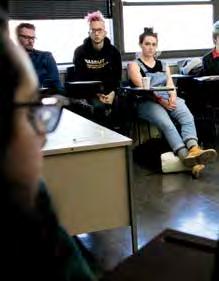
Each year, the History of Art Department hosts an annual symposium, inviting students from any discipline to present their art-historical research to the community.
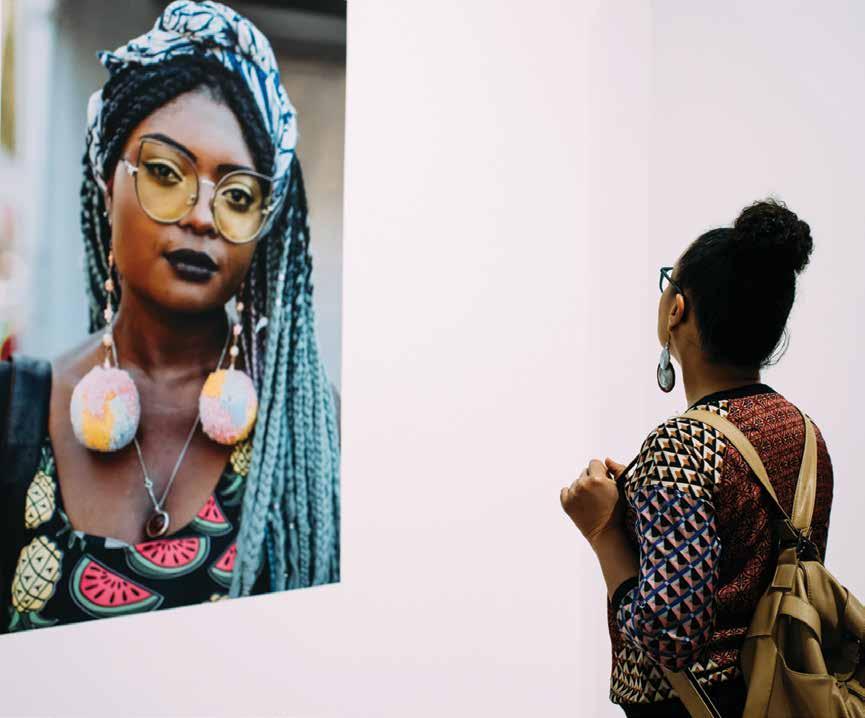
Learning art history from an art school helped me to contextualize the art-making practice, and aided me in material exploration. MassArt allowed me to understand why artists have the drive to create, and gave me more of an understanding as to how artists operate.”
tudents learn to identify, classify, describe, and interpret works of art from a wide range of periods and world cultures. The program begins with an introductory survey of art in the first term, after which students learn about our global and multidisciplinary world through studies in ancient and medieval art, Renaissance, Baroque, and eighteenth-century art, modern and contemporary art and design, and the arts of the Americas, Asia, and Africa. Students also participate in at least two senior seminars involving rigorous, original research into topics in the history of theory of art.
Nearby museums and galleries allow first-hand study of a variety of works, as well as internship experiences in conservation and in gallery and museum operations. Students also have access to international travel courses which provide opportunities for studying monumental works and museum collections abroad. Graduates of the History of Art Program at MassArt go on to pursue graduate degrees in art history, visual culture, and museum studies as well as obtain employment at museums, galleries, auction houses and in publishing.

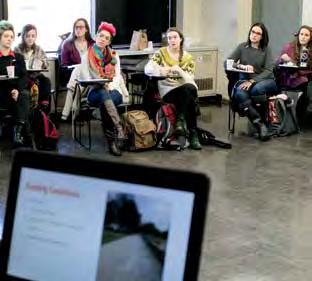
History of Art students are both scholars and artists, participating in thesis research and a rigorous studio practice.
history of art
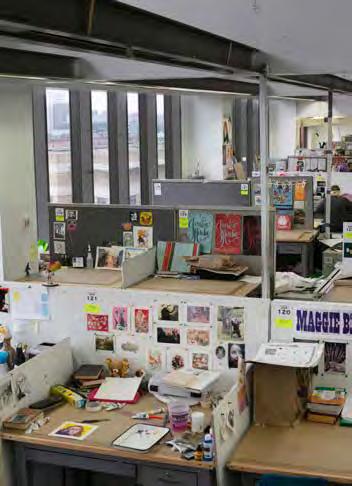

his truly contemporary curriculum is broad, and students, in their quest for visual storytelling, learn to cross the boundaries of several art disciplines. By working in a variety of media, from traditional through digital 2D and 3D, to time-based illustration, students are preparing for professional practice in approximately 50 different job markets.
All faculty are active artists, freelance illustrators or owners of illustration firms. They offer significant insight into the demands of the profession and the full scope of illustration’s possibilities. The program’s coursework culminates in a Thesis Project, consisting of a body of images that reveals the emerging style and points of view of students and is presented at the Senior Thesis Exhibition.
Each spring, the Illustration department hosts a Portfolio Night that features the work of the graduating seniors. In preparation, students learn the business acumen associated with displaying artwork that best expresses their personal aesthetics, speaking about their work, and seeking freelance and corporate opportunities.

This course aims to provide students with an opportunity to partner with a variety of area nonprofit organizations, creating illustrated projects specific to their needs. Similar in structure to the very popular Professional Freelance Studio class, assignments produced in Professional Illustration for the Community have one major difference: intent. This course makes students aware of the fact that illustration need not be limited to the commercial realm and that their artistic contribution can lead to greater understanding of themselves, the community and beyond.
Past collaborations have included organizations such as Zoo New England (inspiring people to protect and sustain the natural world for future generations), Jane Doe Inc., (committed to ending domestic violence and sexual assault, as well as promoting justice, safety and healing for survivors) and The Longwood Symphony Orchestra (supporting health-related nonprofit organizations through public performances).
The Industrial Design Society of America (IDSA) chapter at MassArt enhances the education of every artist and designer in the College by hosting events that educate students on the latest technologies and systems that professionals use, by inviting real world designers and artists to campus exhibitions, studios, and discussions. Representatives also attend the IDSA annual conference to learn about the latest news in the design world.
→ Bose Corporation
→ Boston Children’s Museum
→ Continuum LLC
→ Design Museum Boston
→ New Balance Athletic Shoe, Inc.
This course is an examination of 3D packaging design covering branding, graphics and the development of a P.O.P. “point of purchase” display. Course focus is on all the phases of design, from concept to design development to the threedimensional actualization of a point of purchase display. The goal of this class is to develop a user-centered consumer experience with product/ packaging that creates a memorable experience that resonates with the consumer.
tudents focus on sketching and rendering techniques, manufacturing processes, and the construction of prototypes.
Each student’s intensive design process incorporates research, concept drawing, manufacturing analysis, and material exploration, as they create solutions for consumer products and organizations. The coursework culminates in a major degree project—recent examples of which include a redesigned walker, a stationary bicycle, exercise and athletic equipment, children’s toys, furniture systems, and a school bus.
Internships, design competitions, and partnerships with local manufacturing and consulting firms afford students opportunities to work in the real world. All Industrial Design faculty members are experienced, practicing designers and active members of the Industrial Designers Society of America.

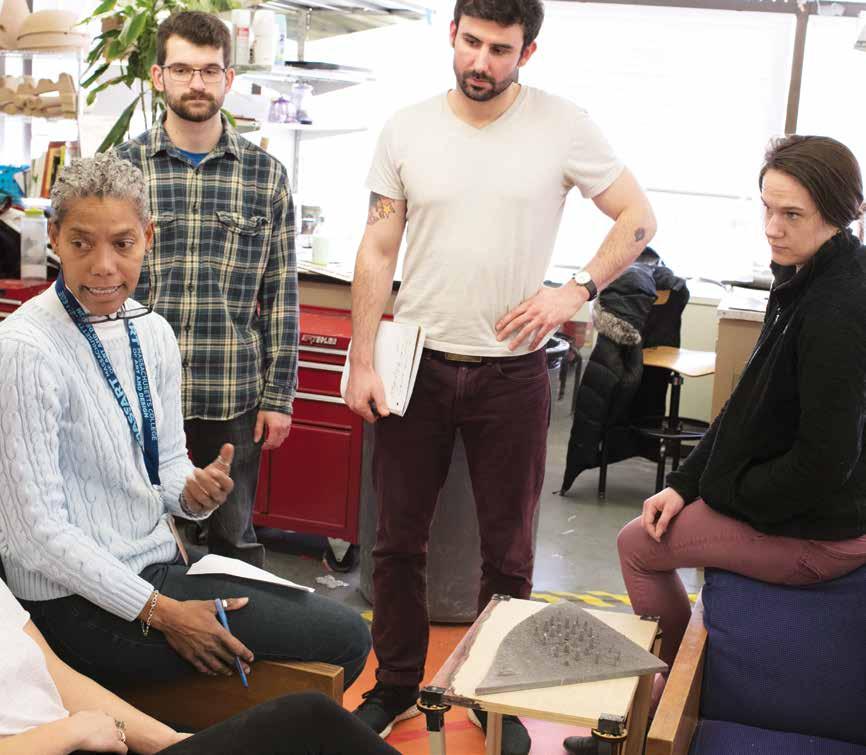

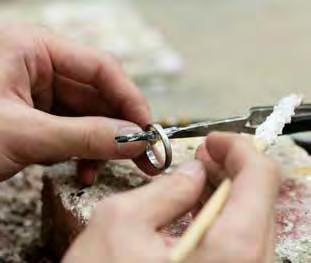
An exploration of vitreous enamel as a medium for visual artists, this class is ideal for experienced students who want to expand their knowledge of different methods of applying permanent color and images to metal surfaces. Built upon the fundamental techniques on how to fuse colored glass powders onto metal surfaces by means of kilns and torches and explore a variety of textural and surface treatments. Students learn traditional methods including basse taille, champleve, cloisonne, limoges and sgraffito, and experiment with etching, painting, stenciling, drawing and image transfers onto enamel surfaces.
The jewelry and metals department is a supportive and inspiring environment. The small scale allows for a tight-knit community of talented makers.”
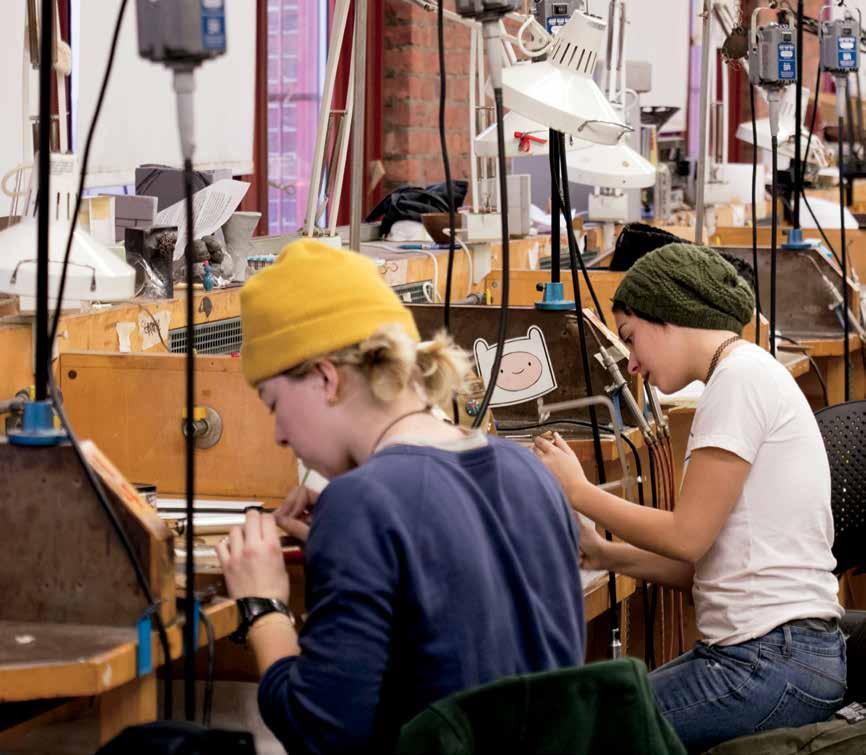
Several graduates from the Jewelry & Metalsmithing program have received acclaim in their respective fields. Sophie Hughes ’08 BFA was named Best Jewelry Designer by Boston Magazine in both 2016 and 2017, alumnae Jill Martinelli ’06 BFA and Sabine Le Guyader ’05 BFA founded Lady Grey Jewelry together, designing jewelry for celebrities including Beyoncé, and in 2017, actress/comedian Whoopi Goldberg sported a bracelet by Elisa Melegari ’14 BFA to New York Fashion Week.
tudents focus on creating jewelry, art objects, and functional objects from both base and precious materials, while learning how objects are informed by their social, cultural, and historical contexts.
Along with essential techniques such as construction, casting, forming, stone setting, and computer aided design (CAD), coursework is offered in all major metalworking techniques—including vacuum and centrifugal lost wax casting, vulcanized and silicone mold processes, hydraulic press techniques and die forming, and three-dimensional modeling and CNC milling. Essential reading, discussion, research, exercises in presentation, legal and business professional practices, exhibition strategies, and self-promotion form the continually evolving curriculum, as well as regular visits from artists with experimental methods and materials.

The Jewelry & Metalsmithing major offers an immersion into the knowledge of the diverse materials and careful workmanship involved in this ancient — and contemporary — ar t form.
ainting students are part of an intense working environment that encourages diverse practice and does not limit the development of work into other genres.
Painting students are initially grounded in core techniques and fundamental visual properties. Drawing is an essential part of the discipline and required coursework establishes links between the instinct to draw and the conceptual and physical processes that form the basis of painting. Students are introduced to advanced techniques and processes, with an emphasis on individuality and experimentation in form and content.
Painting students are allotted independent studio areas within larger communal spaces. Painting students have the benefits of traditional painting instruction and the opportunity to evolve as part of a collaborative, contemporary community.
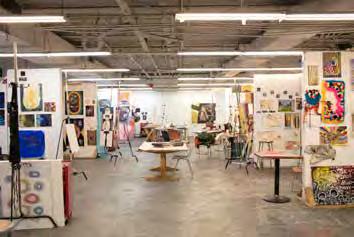

Each year, the Fine Arts 2D Department hosts lectures featuring groundbreaking artists whose work has been recognized in their fields. Past visiting artists include Polly Apfelbaum, Nadia Ayari, Michael Berryhill, Ambreen Butt, Sean Downey, Walton Ford, Ariel Basson Freiburg, Chie Fueki, Michelle Grabner, Byron Kim, Richard Raiselis, Daniela Rivera, Duane Slick, Alexandria Smith, Amy Weiskopf, and Bert Yarborough.

Boston
Painting Through a Digital Lens explores how digital tools and the digital era can influence the artist's studio practice. Through both abstract and representational imagery, participants will develop their own styles within a framework of new ideas, tools, and approaches to painting and drawing. Participants will deploy digital tools already at their disposal (computers, social networking, smart phones, cameras, digital printing, etc.) to work between concept and process in creating new work, and examine distinctive art being generated in the Information Age.
Photographer Laura McPhee is noted for her stunning large-scale landscapes and portraits of the people who live and work in them. Her latest project involves the western desert of the United States, where she chronicles visual stories about time, both geologic and human. Laura’s work is collected by world-renowned institutions such as the Metropolitan Museum of Art, The Whitney Museum of American Art, J. Paul Getty Center Museum, and the San Francisco Museum of Modern Art. She holds a BA from Princeton University and an MFA from Rhode Island School of Design.
The Photography program is based in an 11,000 square foot facility with access to digital and analog equipment, as well as a selection of quality and rare cameras for student use.
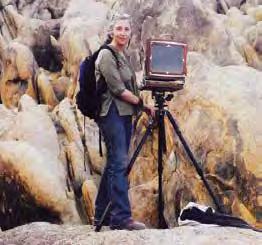
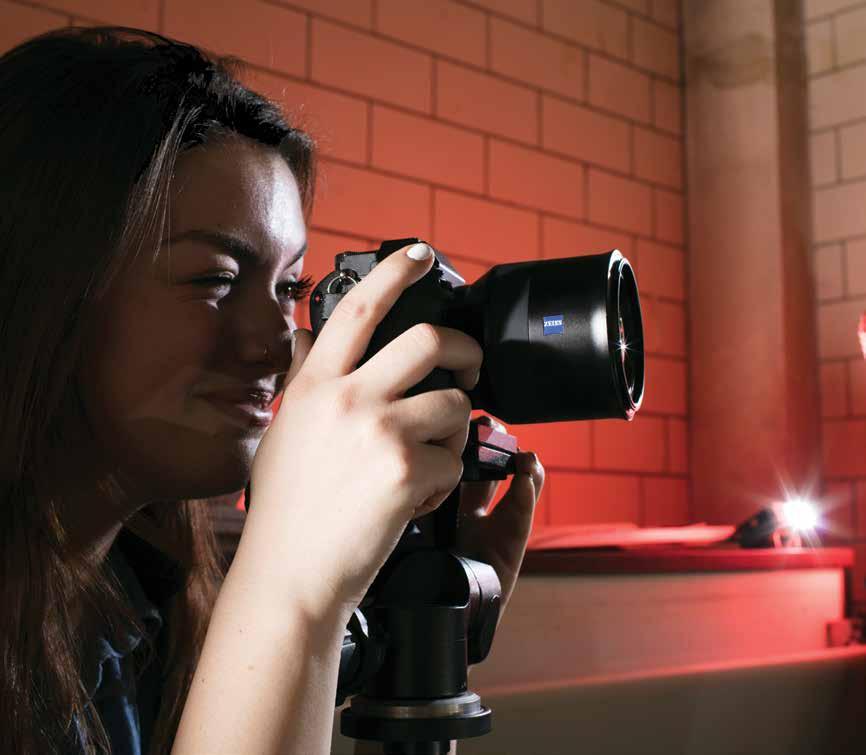
→ Abelardo Morell Studio
→ Boys and Girls Club of Dorchester
→ Converse Inc.
→ Peabody Essex Museum
→ Rue La La
ooted in a spirit of experimentation and thoughtful engagement with the history and traditions of the medium, the Photography program enables students to become accomplished and innovative image makers.
With access to exceptional labs and equipment, students learn an array of analog and digital techniques in order to create images that reflect their unique perspectives and distinctive stories. Through critique, collaboration, and critical thinking, students are supported by highly respected, award-winning faculty and the department’s renowned lecture series which welcomes visiting artists, historians, editors, and curators to campus each semester.

Photography provides an ongoing opportunity for conversation. It is dynamic and ever-evolving as technology advances. Photographers speak in languages both visual and verbal, about the multitude of perspectives in a changing world.
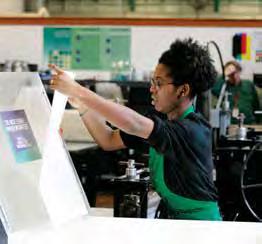
Since 1993, the annual Master Print Series has offered students the opportunity to collaborate with internationally renowned visiting artists such as Ambreen Butt, Winfred Rembert, Kiki Smith, Sarah Sze, and John Walker. Students produce professional-level editions and unique prints in conjunction with the artists in this unique, hands-on multi-day residency.
In 2016, as part of MassArt’s ongoing Visiting Artist program, Fine Arts 2D faculty hosted Eduardo “Choco” Roca Salazar, one of Cuba’s most renowned printmakers. An exhibition of his work, titled Opening Pathways, showcased Choco’s prints and brought the MassArt community together to celebrate his work. Choco visited with students in the print shop to share his technique and critique their work.

The Printmaking Studio (or “print shop”) is one of the most treasured spaces on campus. The largest printmaking studio in Boston, our 9,000 square foot studio is divided into three sections: one area for etching, relief and monotype area; another for lithography and relief area; and a third for silk-screen.
he Printmaking program at MassArt encapsulates the study of traditional techniques as well as modern approaches. Students take courses in etching, lithography, silkscreen, relief, photographic print processes, and drawing. They also study monotype and woodcut techniques, in addition to digital color separation.
MassArt’s spacious studio offers students easy access to cross-media investigation and installation in a collaborative community. Vertical learning is encouraged, as junior and senior Printmaking majors meet together for 10 hours per week and have individual studio spaces. An active Visiting Artist program adds to the mix with supplemental workshops, technical demonstrations, and individual critiques.
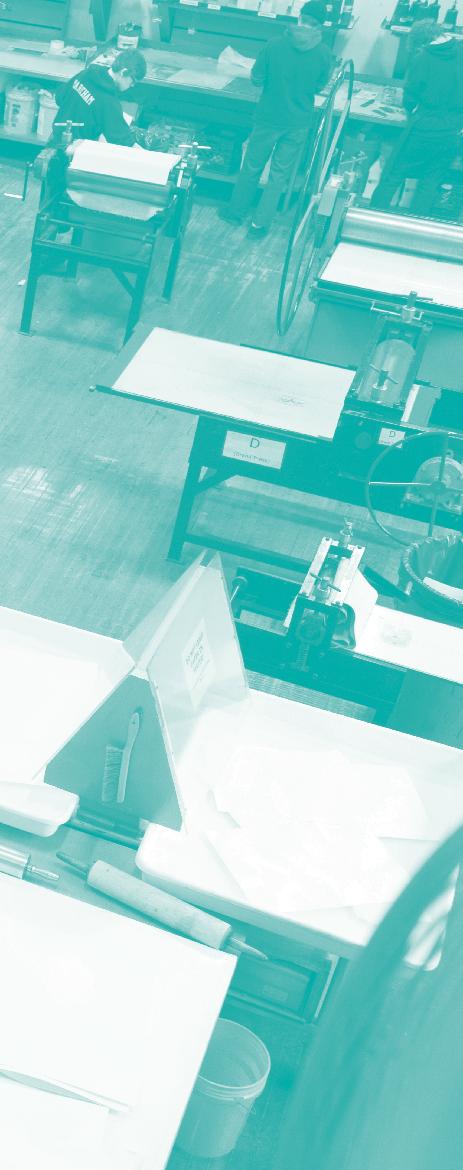

Iron Corps is a student group dedicated to the practice and process of casting iron. The group’s goal is to create sculptural art in iron, and to further the practice of cast iron art by helping anyone with the process, not just 3D majors. Iron Corps helps students in all points of the process from creating molds for waxes, to wax-working, to creating finished molds, and to actually running an iron furnace and pour field.
The Metal Shop is a shared 3-D facility in the Collins building that is divided into four areas. The Foundry is where students cast molds using molten bronze, aluminum, or copper. The Forge area includes coal and gas forges for blacksmithing, and advanced metalworking. The Welding area offers large tables for layout and fabrication, and the Machining area allows for finishing work once a piece has been cast, forged, or welded.
This course is taught in two segments. The first segment consists of building an ecorche of a cow. Students examine the anatomy of the cow through reference sources and from life, with a goal of developing an understanding the internal structures which account for its form. During the second segment, students have an opportunity to apply what they learned by creating a sculpture of the animal they choose. This course requires field trips.

tudents develop technical and conceptual skills in a variety of media through courses in anatomy, figure modeling, foundry, mold making, carving, woodworking, welding, kinetic art, digital 2D to 3D processes, and installation. The department offers support for students who wish to concentrate in a particular process to those who work across disciplines. Sculpture faculty are working artists who bring a diverse array of approaches to making sculpture.
Classes explore issues common to sculptors, such as the role of art in community, a brief history of sculpture, presentation and site possibilities, and idea development. Junior and senior major studios offer individual mentor time with faculty and group critiques with faculty and guest critics.
At MassArt I made many long lasting connections with both faculty and peers. The conversation and guidance I received has continued to buoy my practice.”
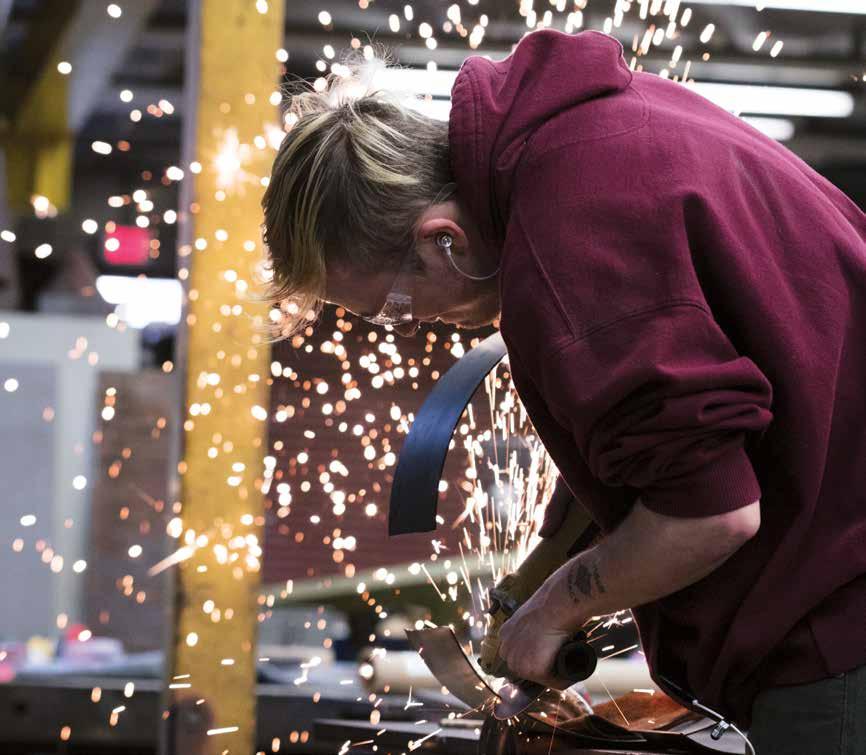
This course is an opportunity for students to collaborate and invent works that involve various groupings of people engaging in collective actions that are both performative and non-performative. The course challenges students to question the form of artistic practice while expanding how we interrelate ideas, bodies, information and experience.

The Studio for Interrelated Media (SIM) manages the Pozen Center, a 3,000 square foot light-tight flexible performance space equipped with video, audio, and lighting systems. The space is adaptable for specific design requests and operated by trained students from the SIM program. SIM is also equipped with a digital sound studio, a digital video editing suite, and a store-house of analog and digital equipment, ranging from a theremin and a mirror ball to the latest in augmented and virtual reality technology.

IM emphasizes the dynamic relationships among the arts, culture, and society and inspires students to think conceptually across disciplines. Successful SIM majors are self-disciplined, motivated to action, and open to collaboration and civic engagement. Through required coursework, a variety of open electives, and dynamic extracurricular opportunities, students are challenged to craft their own self-directed, interdisciplinary program. SIM majors work with experimental media, sound, light, motion, digital tools, live performance, public practice, interactive installations, event production, print and spoken word, and/or a combination thereof.
Students have the opportunity to gain hands-on experience curating, designing, and producing by annually re-inventing the Eventworks experimental arts festival and managing SIM's Godine Family Gallery. Additionally, students have great success finding internships and jobs that leverage the skills they learn in the program in the areas of program management, live event production, and entertainment industries, among many other fields.
major is designed for students interested in a curriculum that supports idea-centered,
and non-media specific artistic practice.


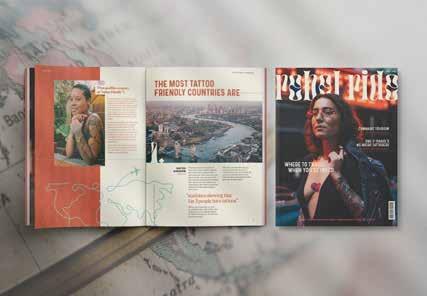
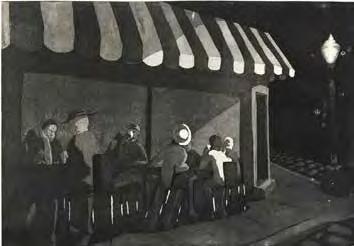

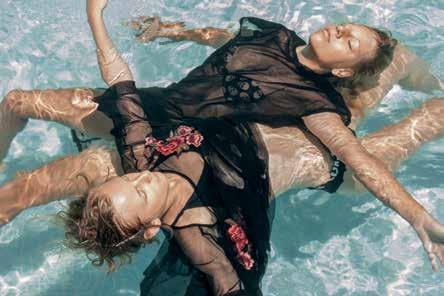

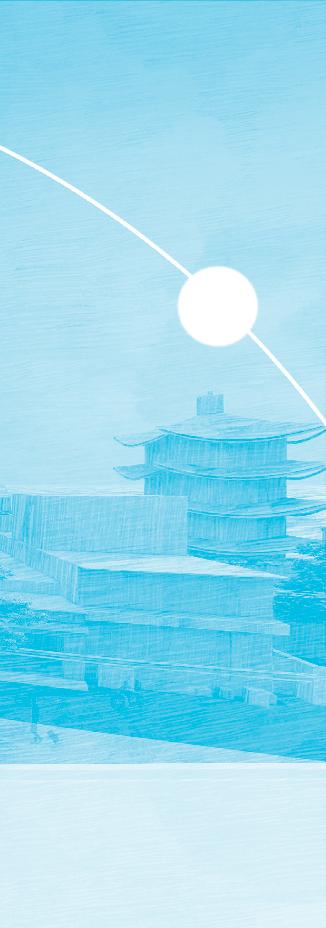


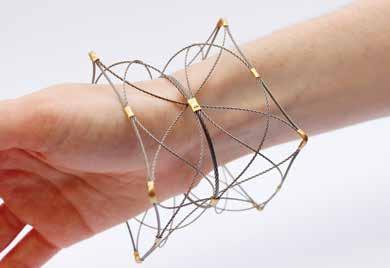

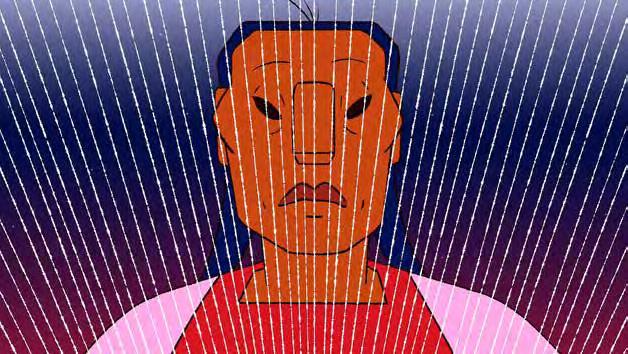

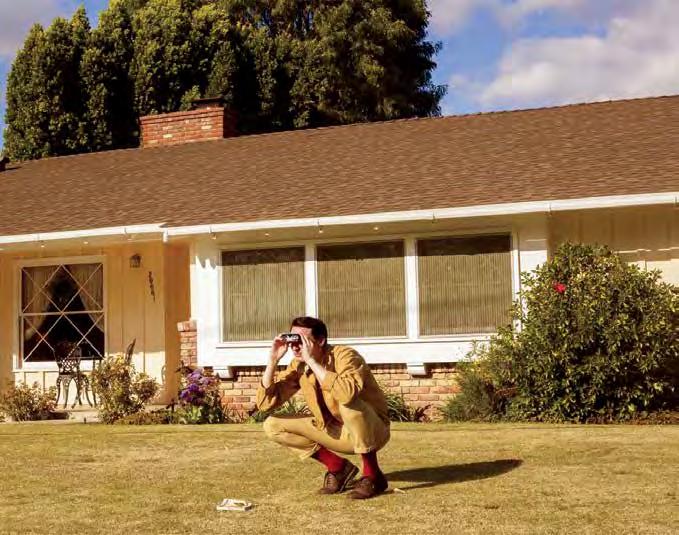
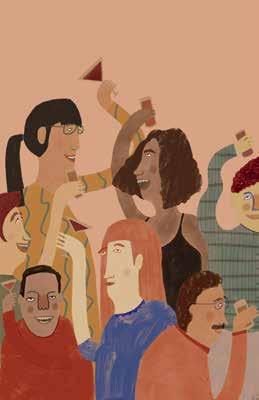
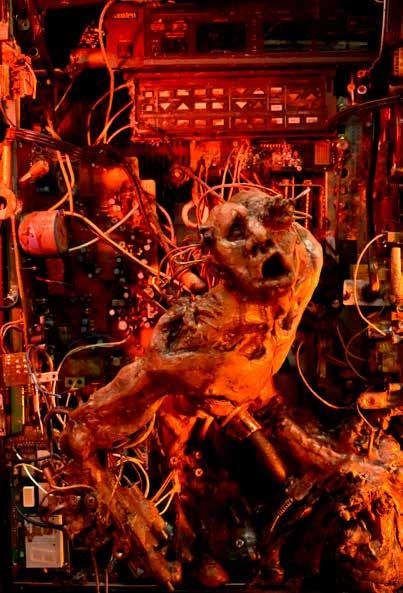

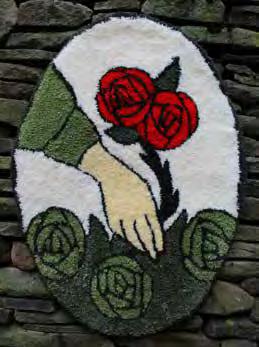

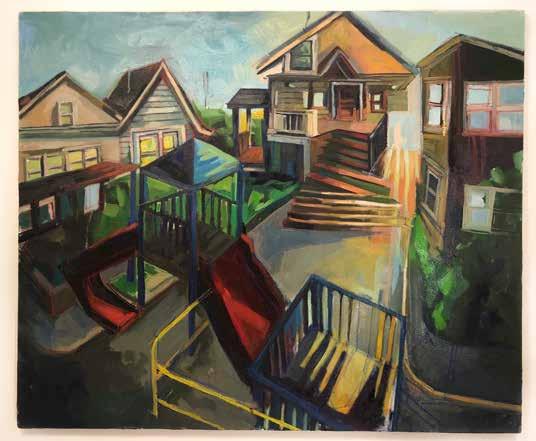


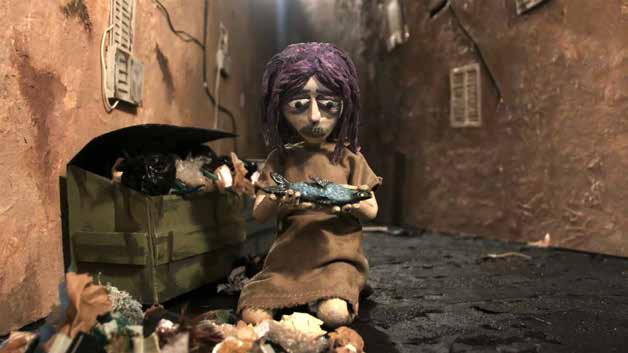
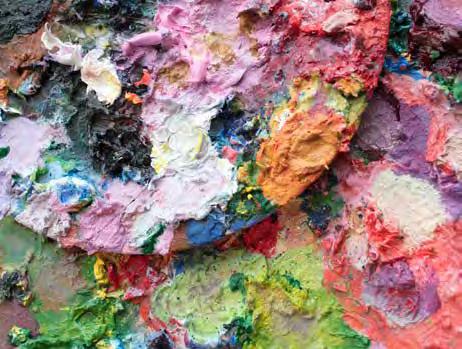
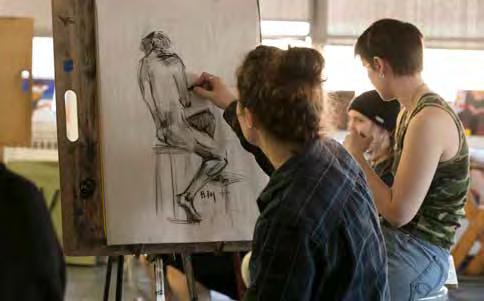

Susie
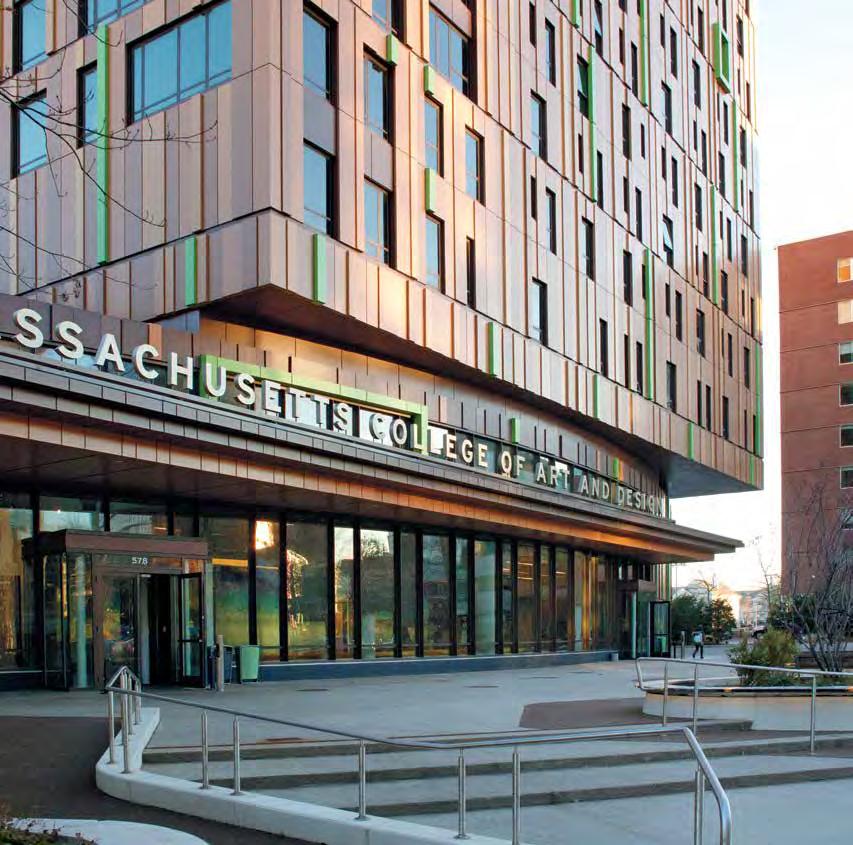


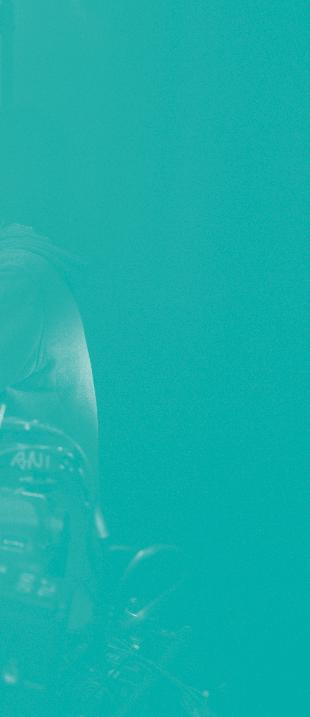
Marcus
Daisy






